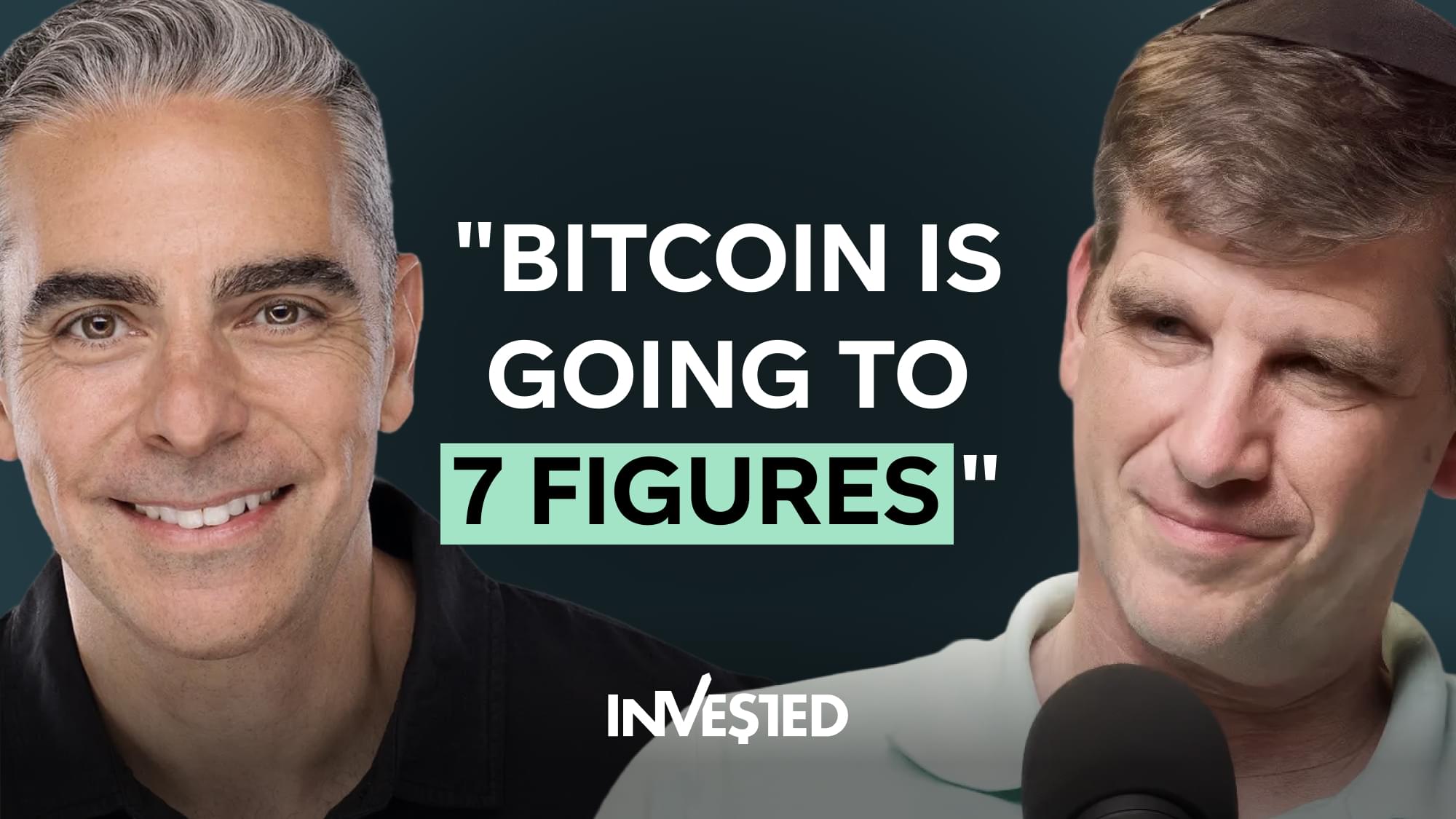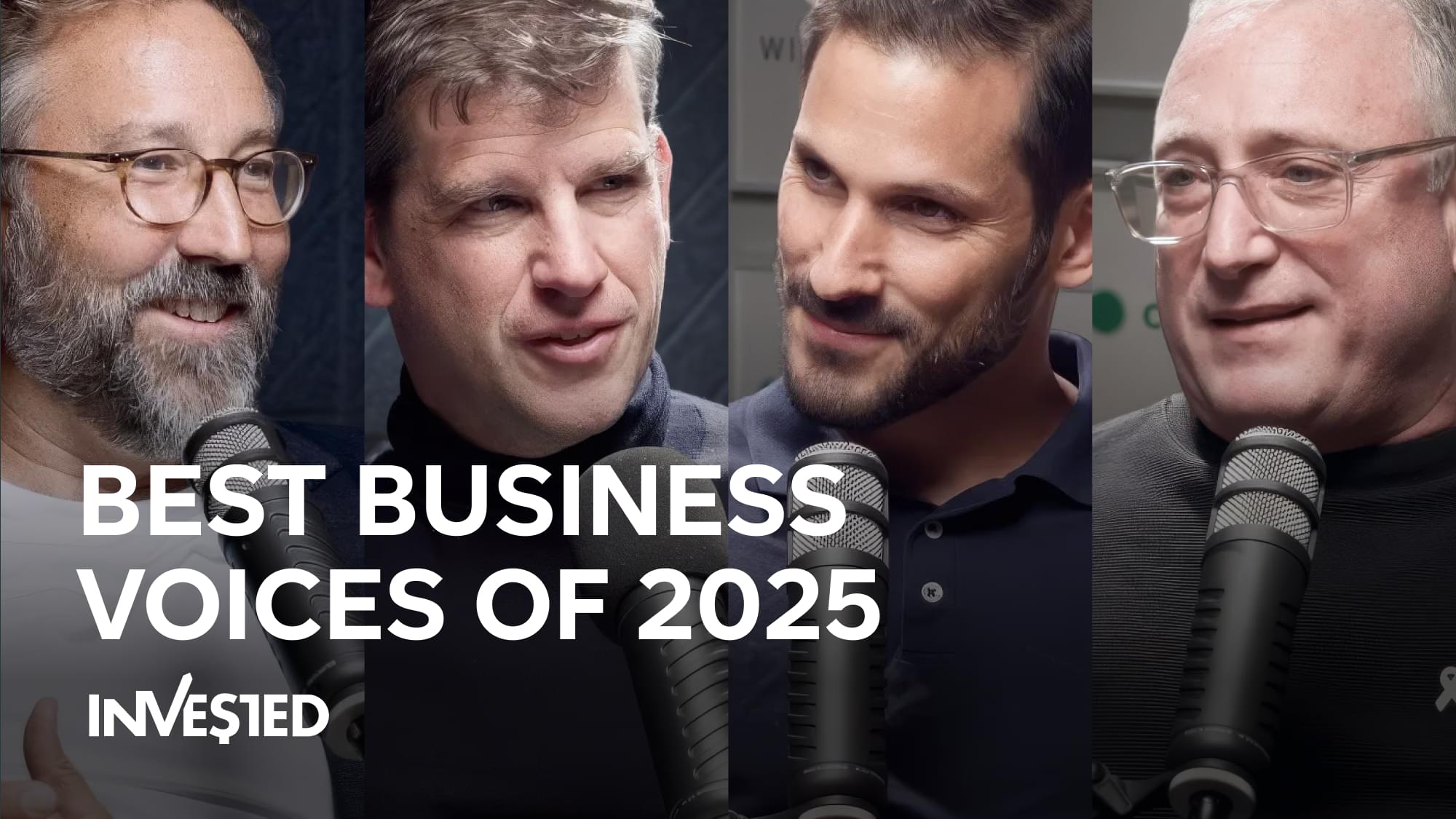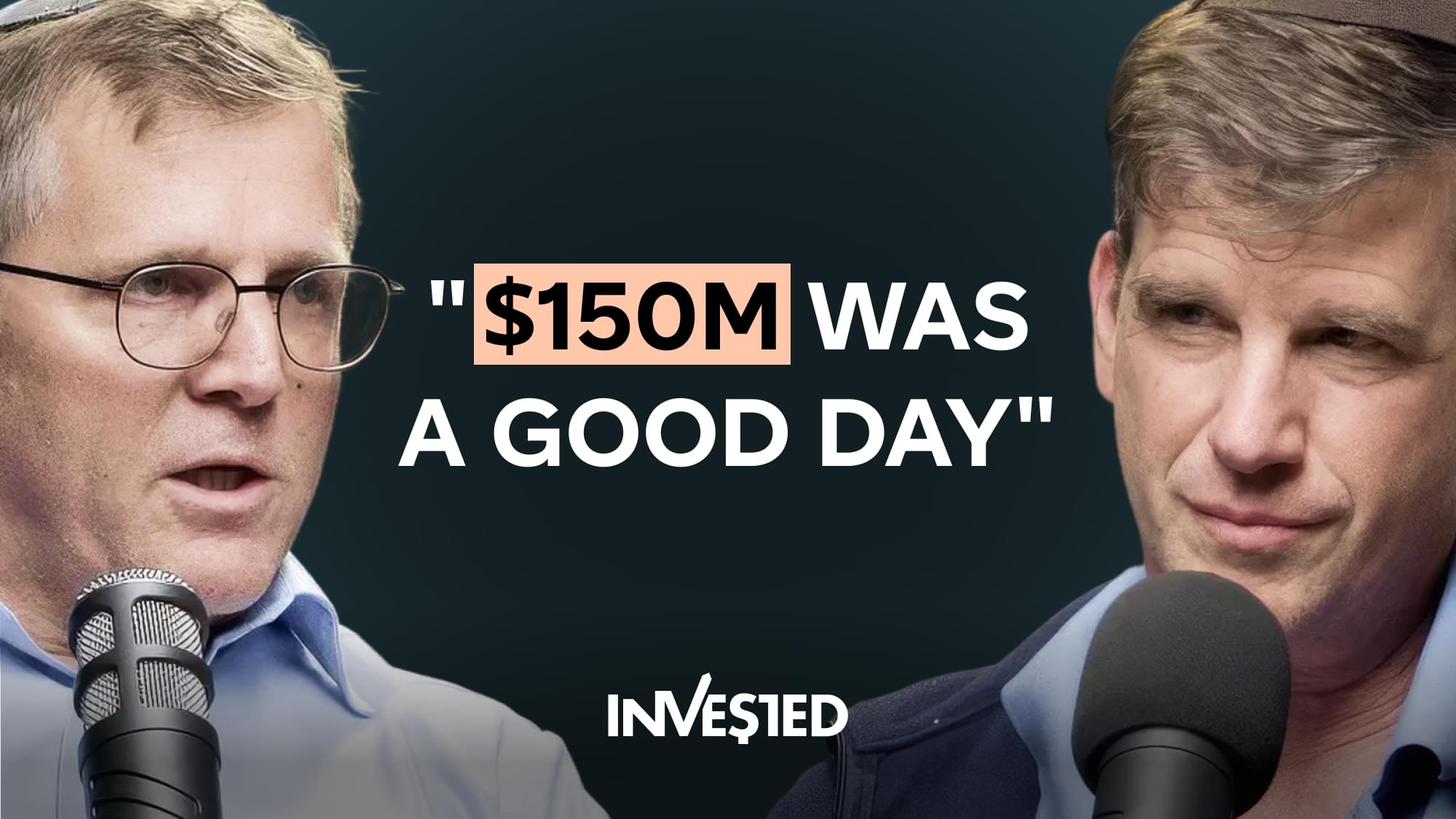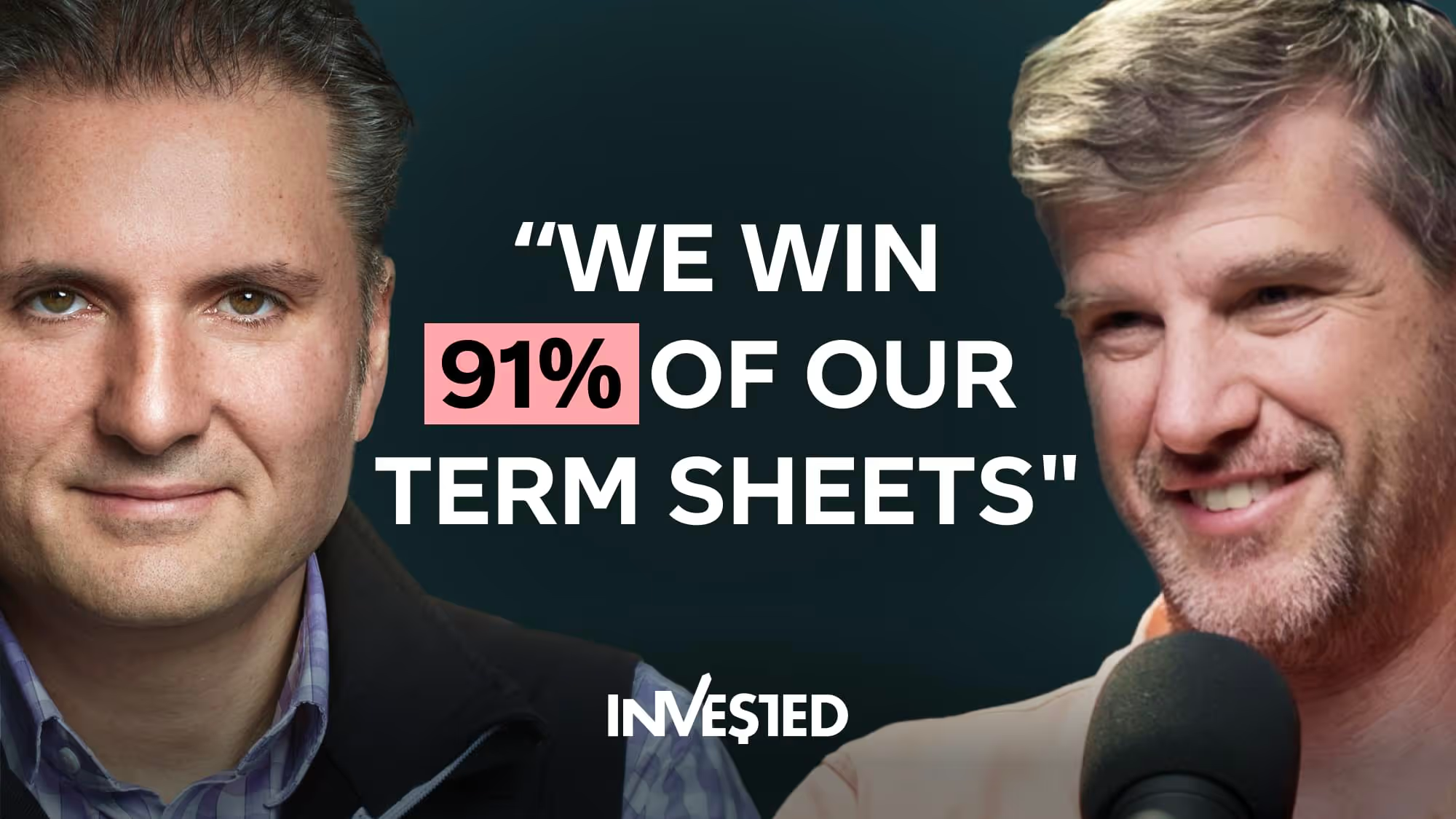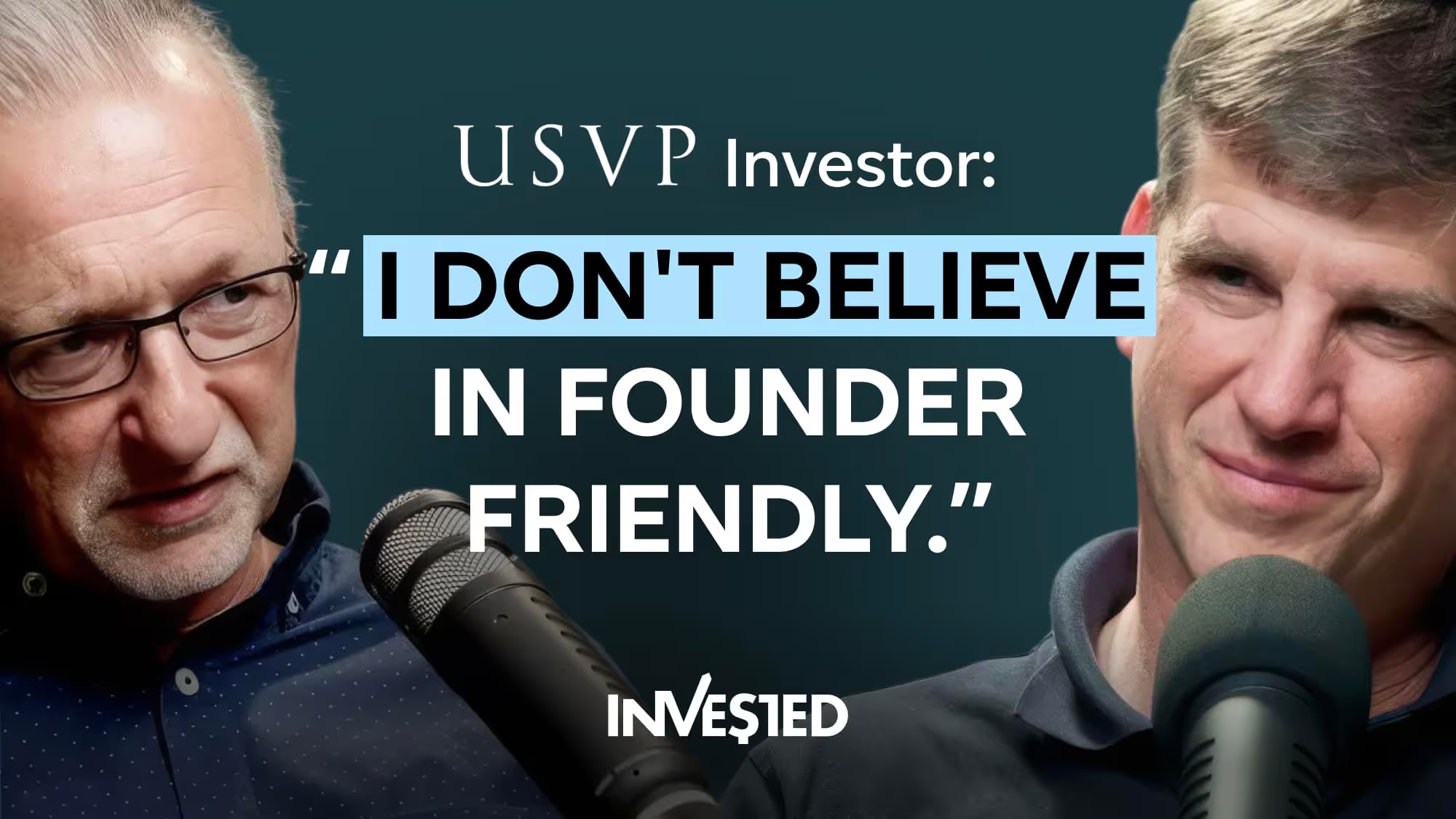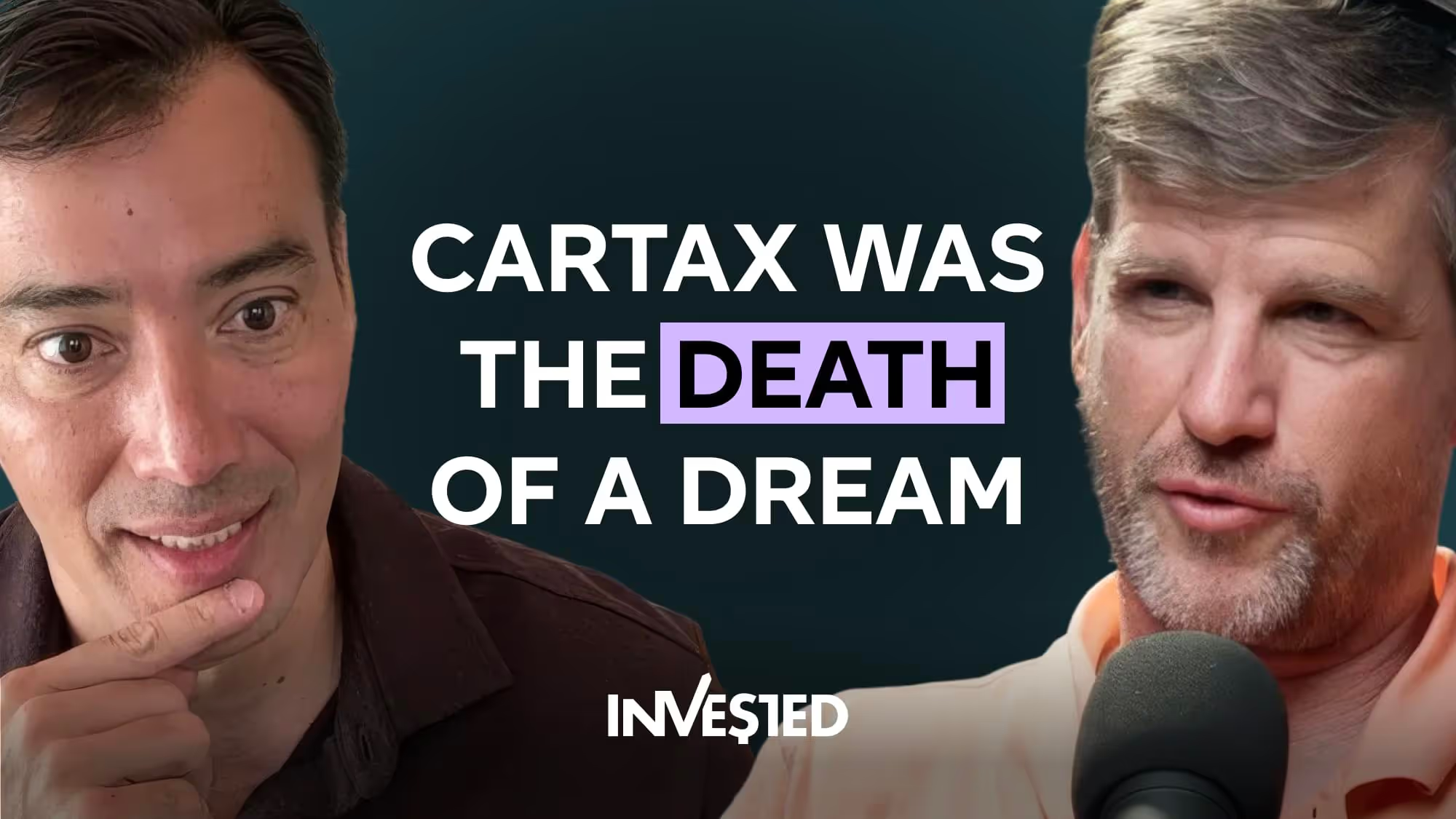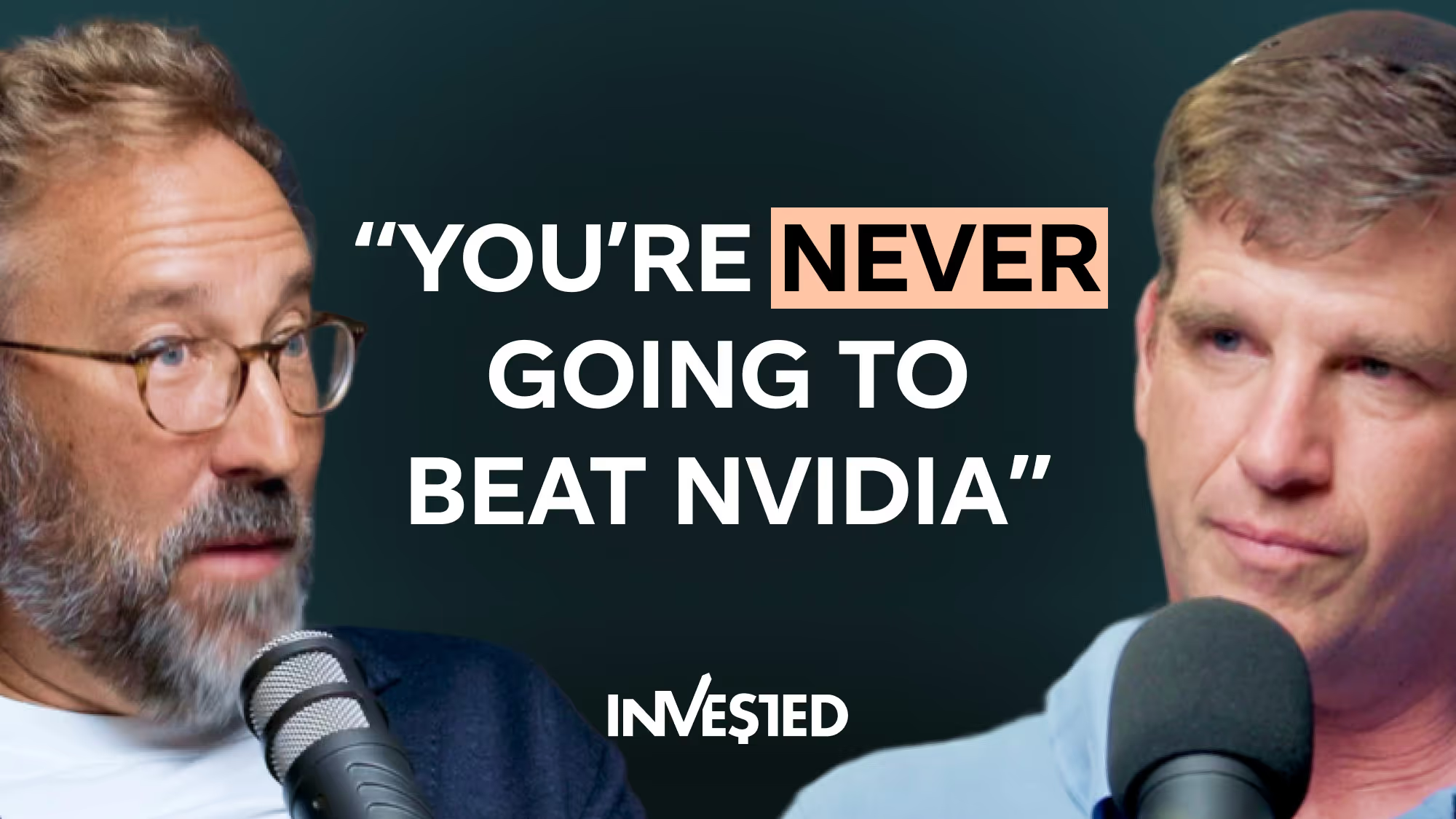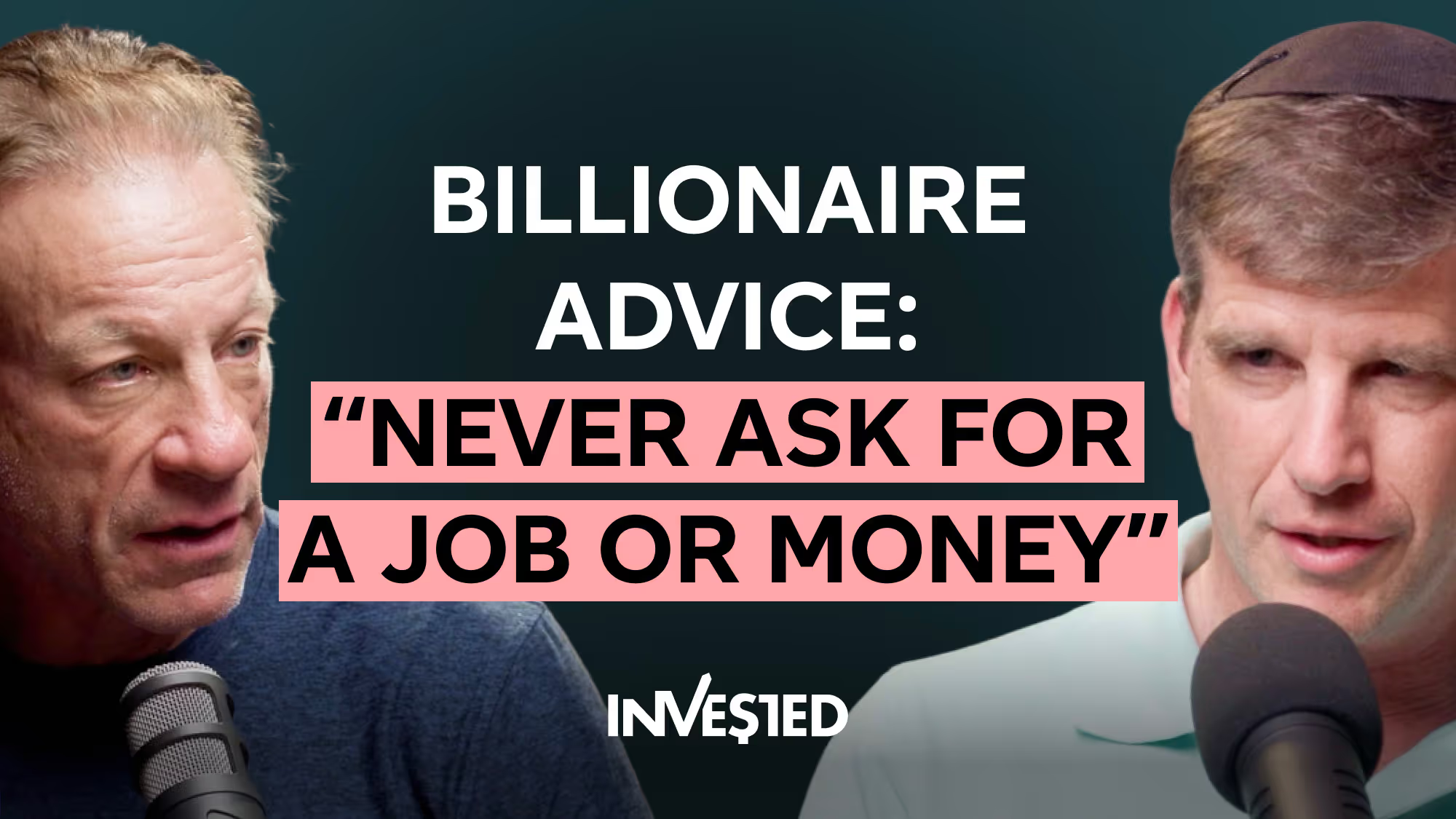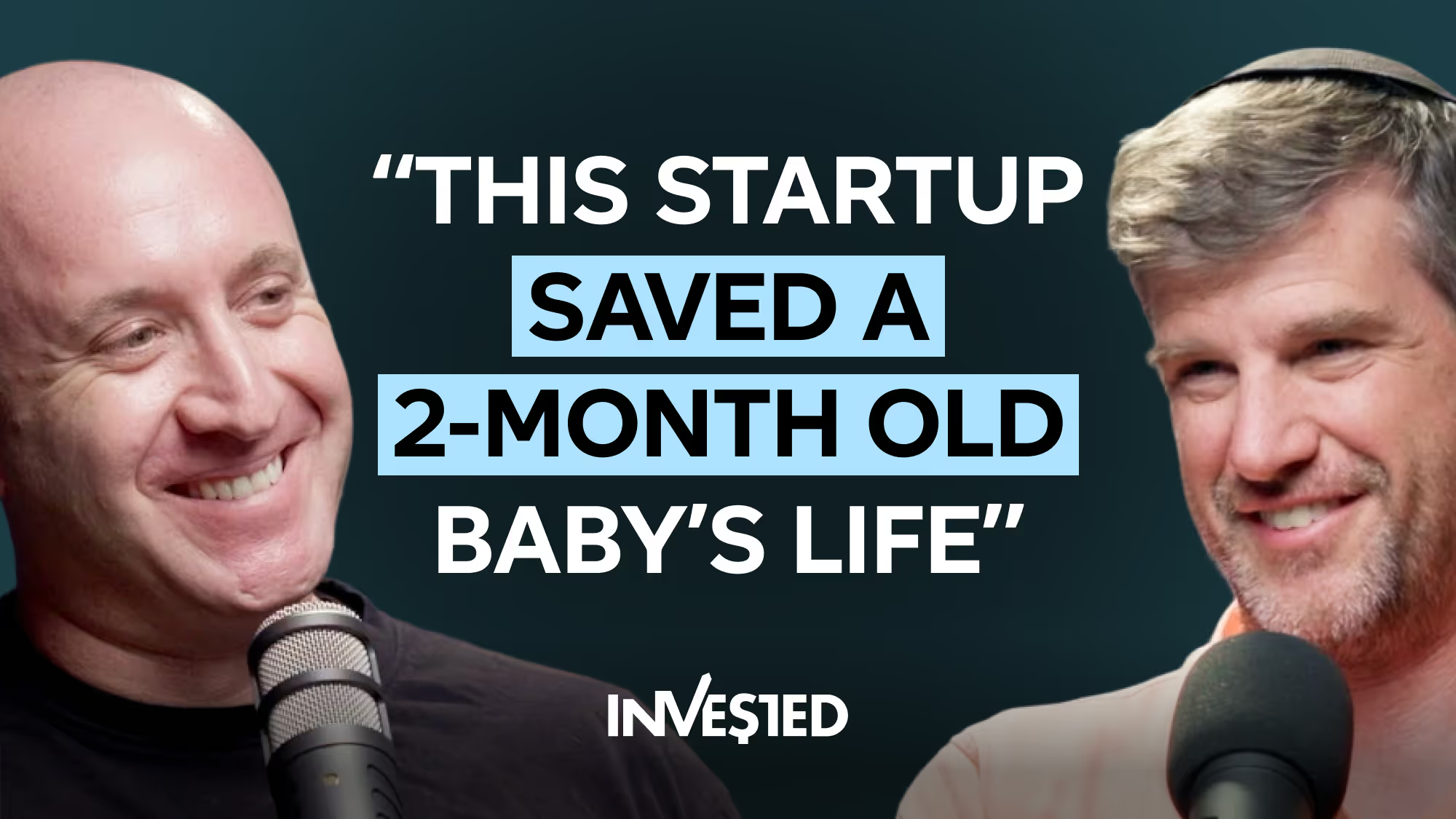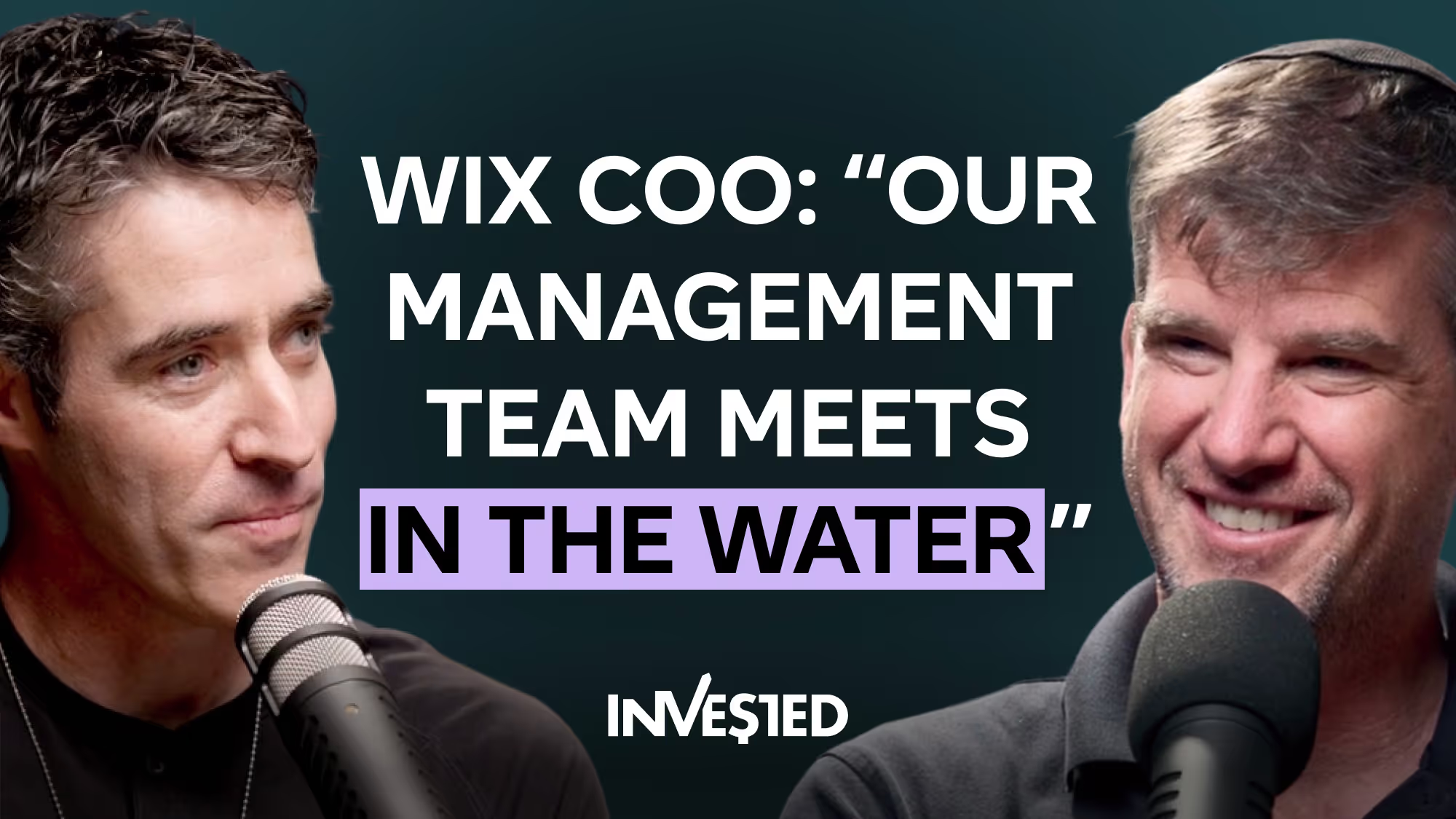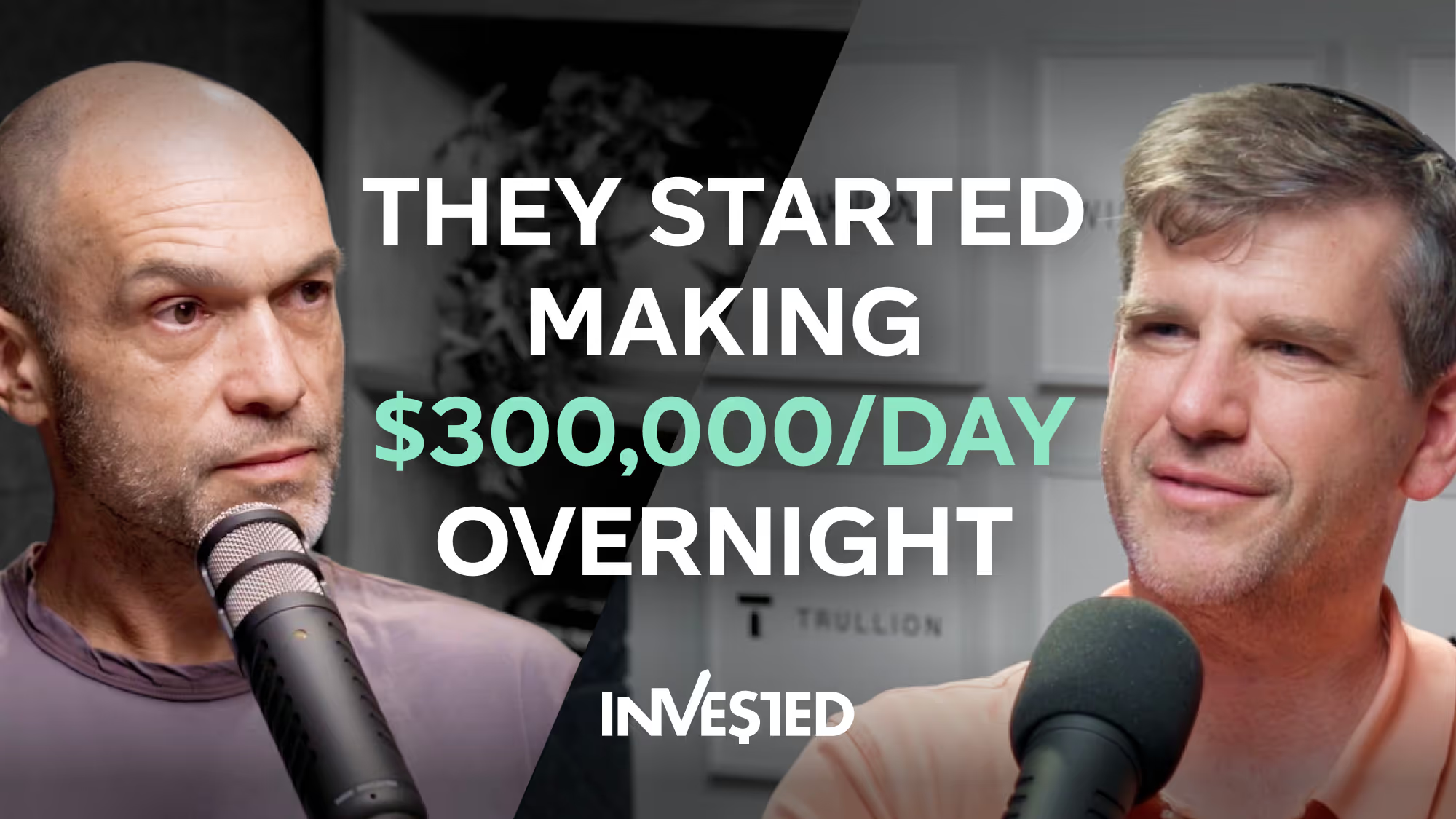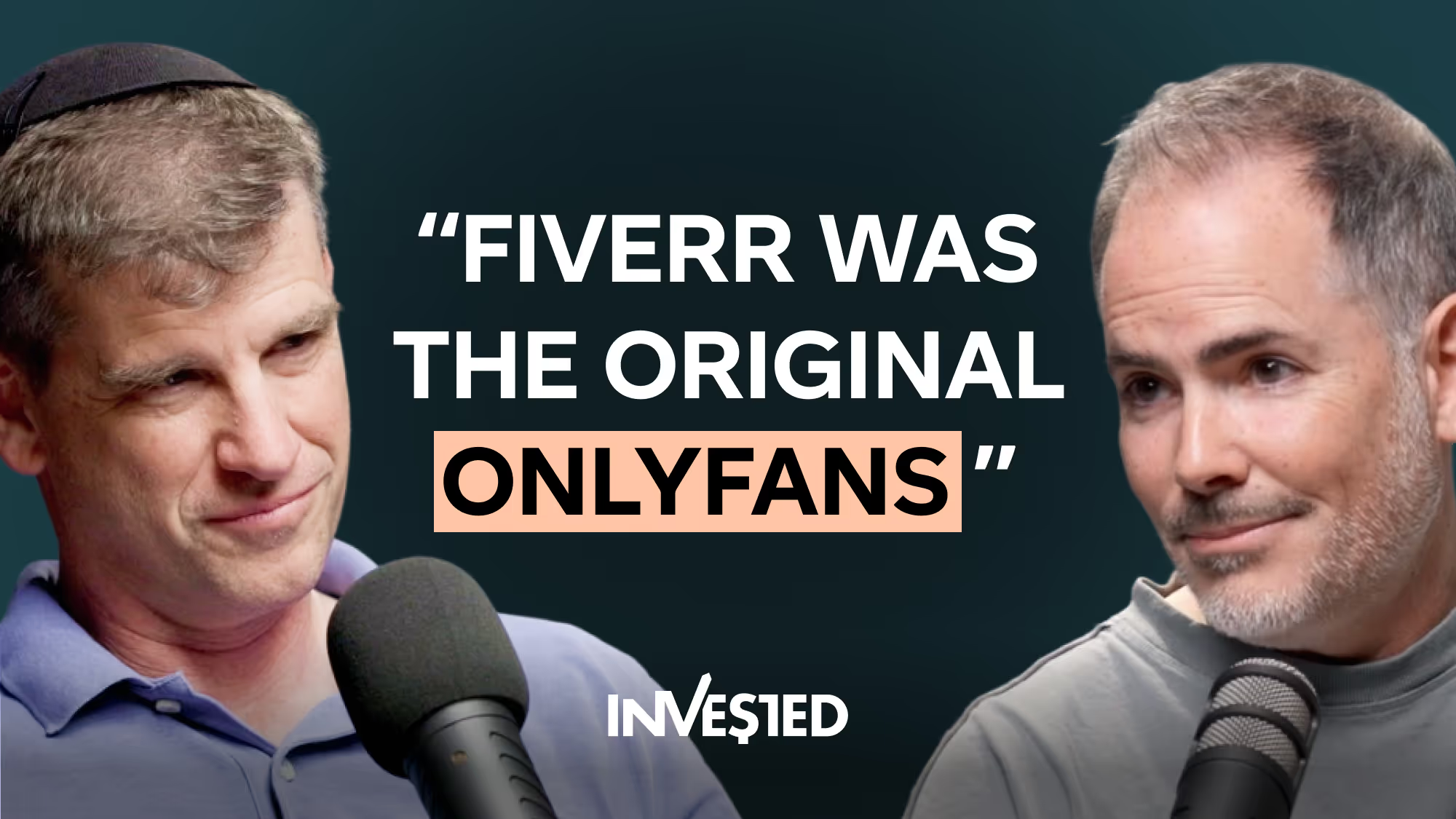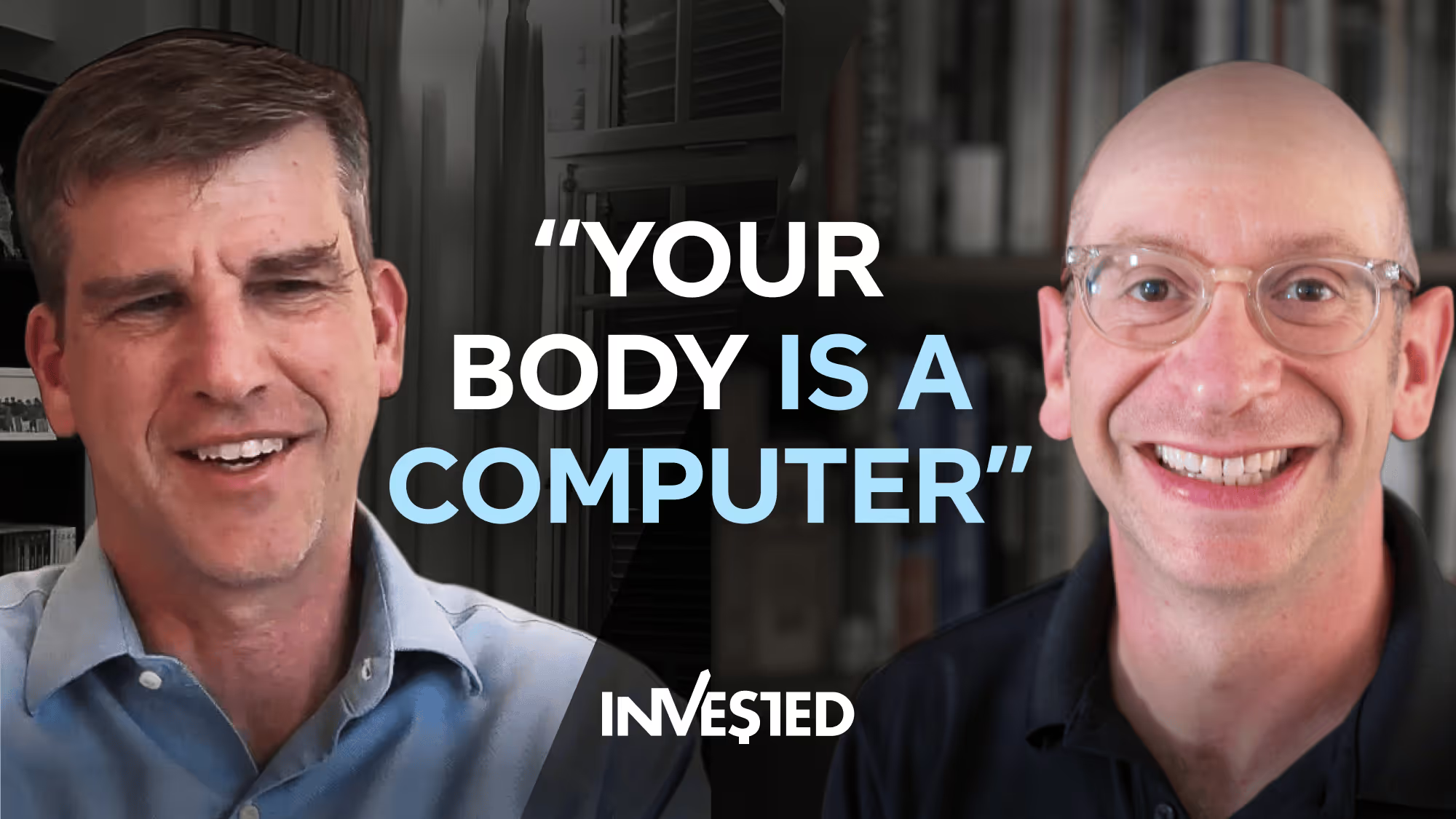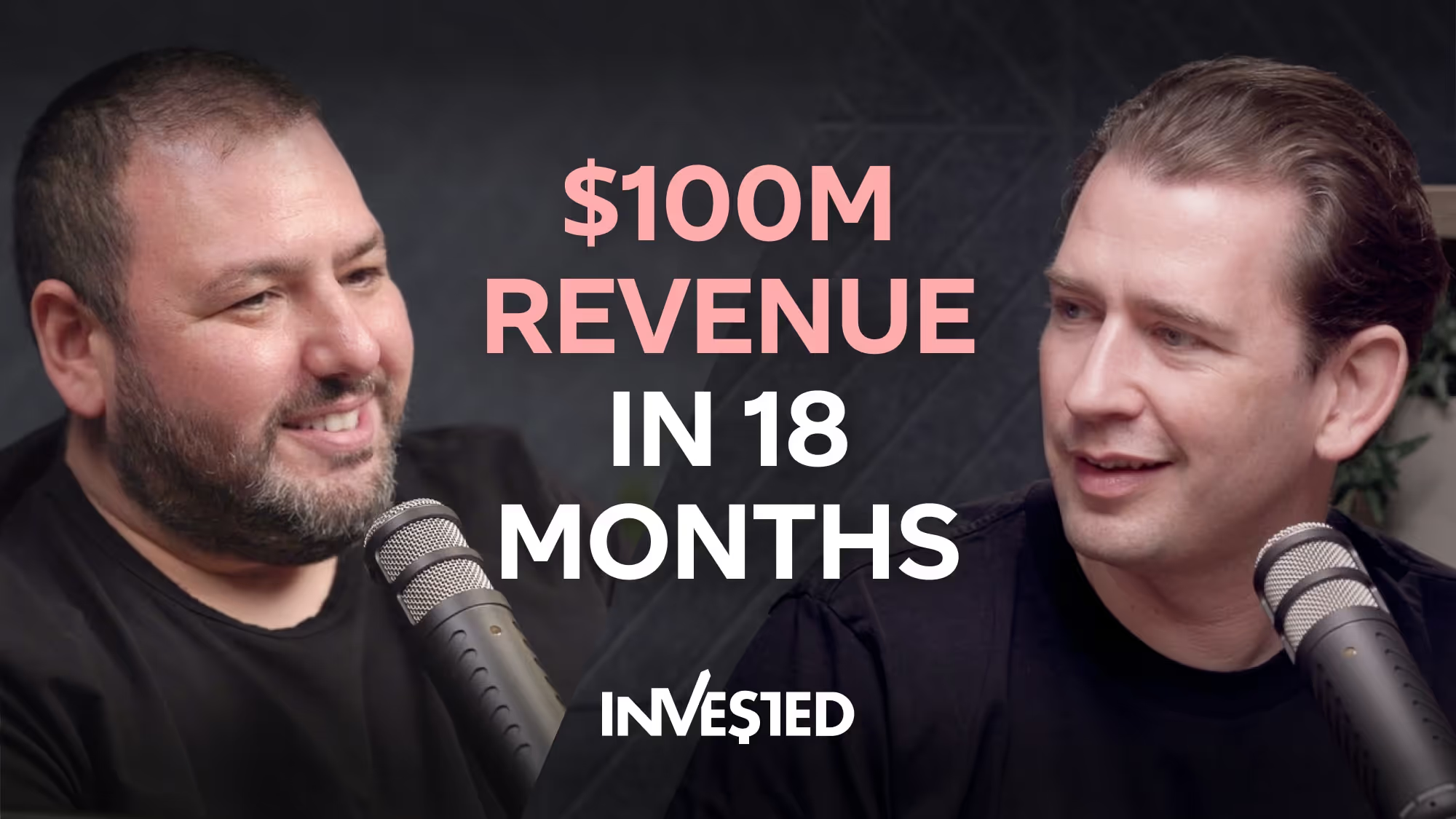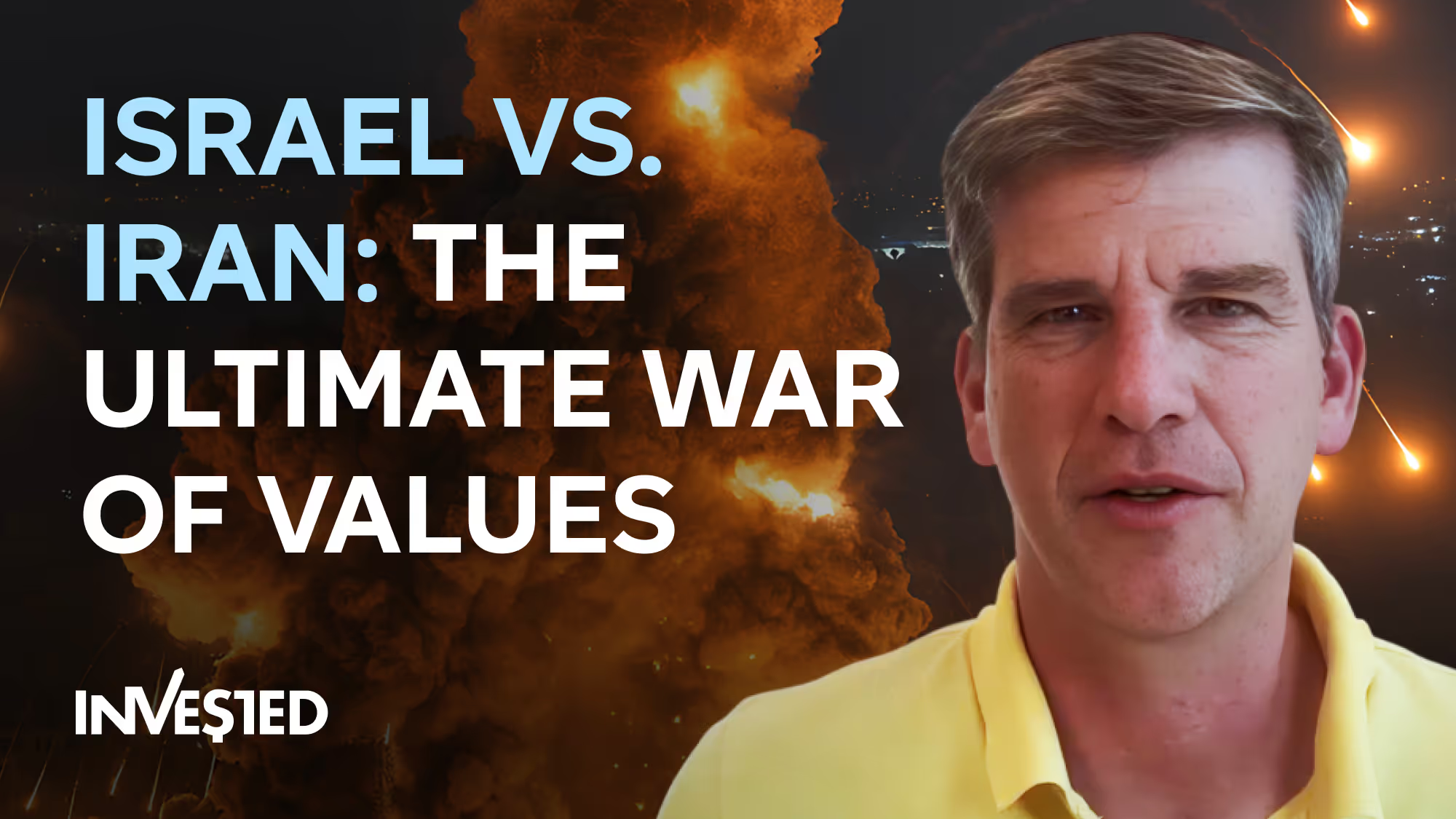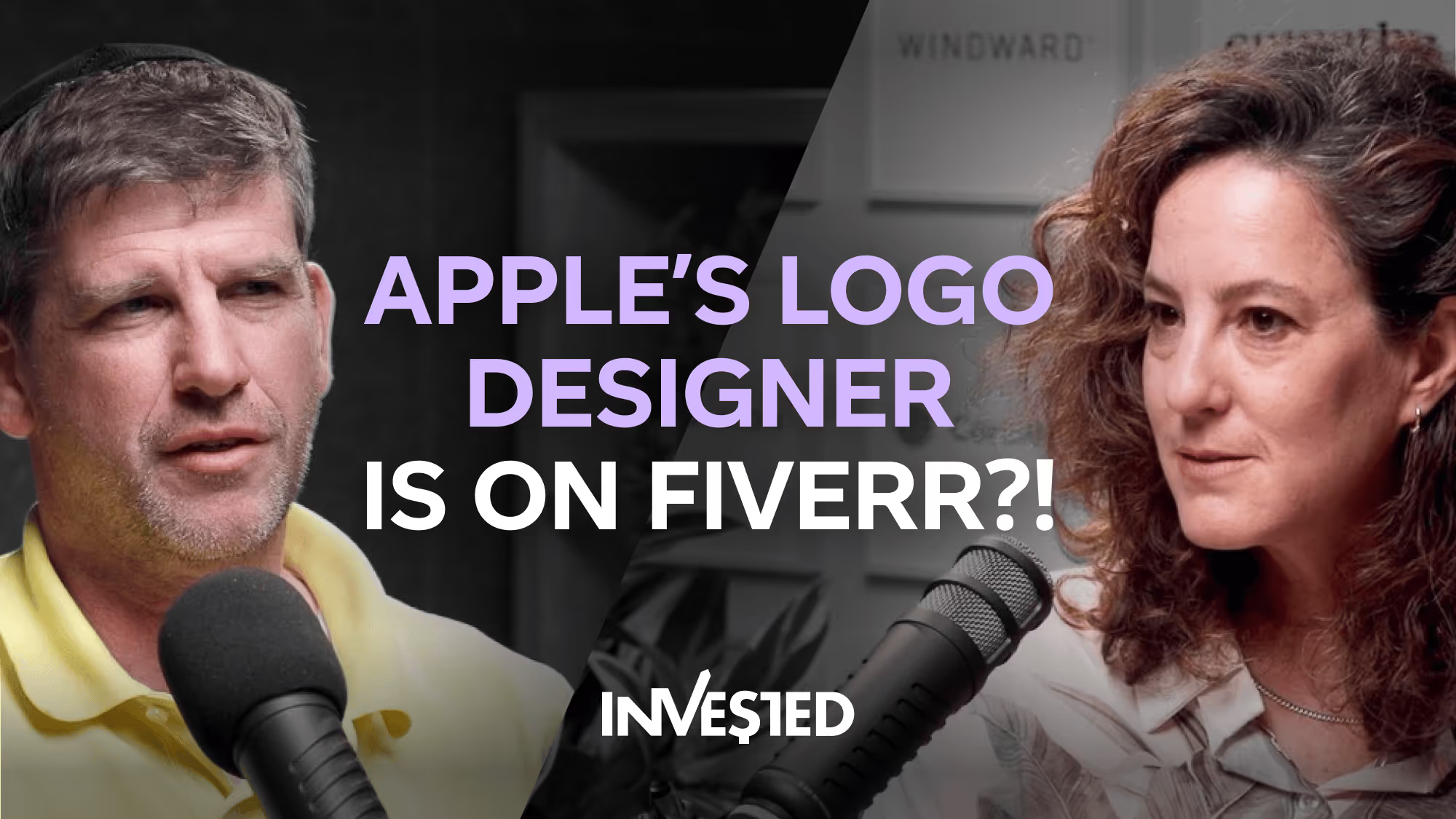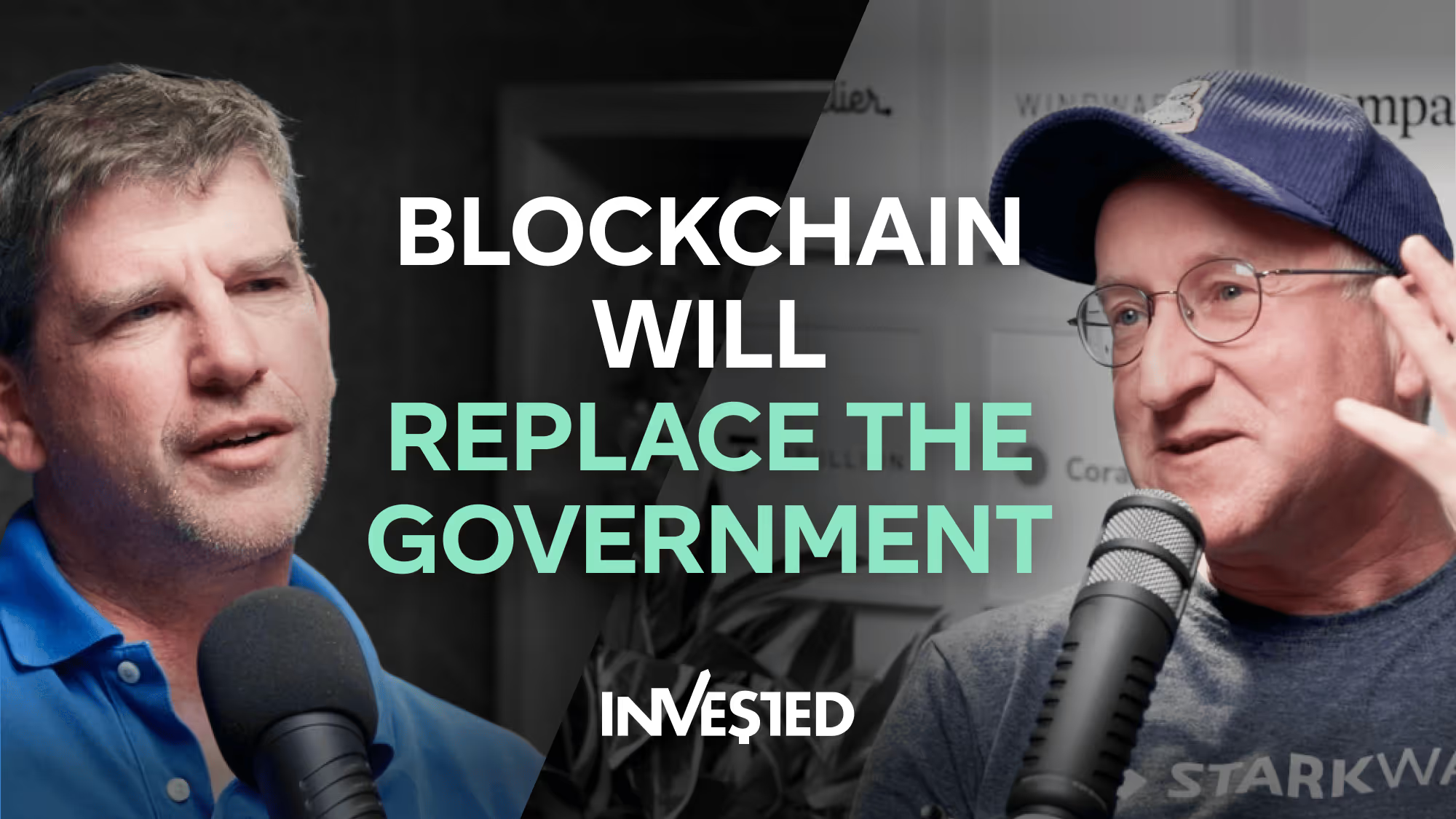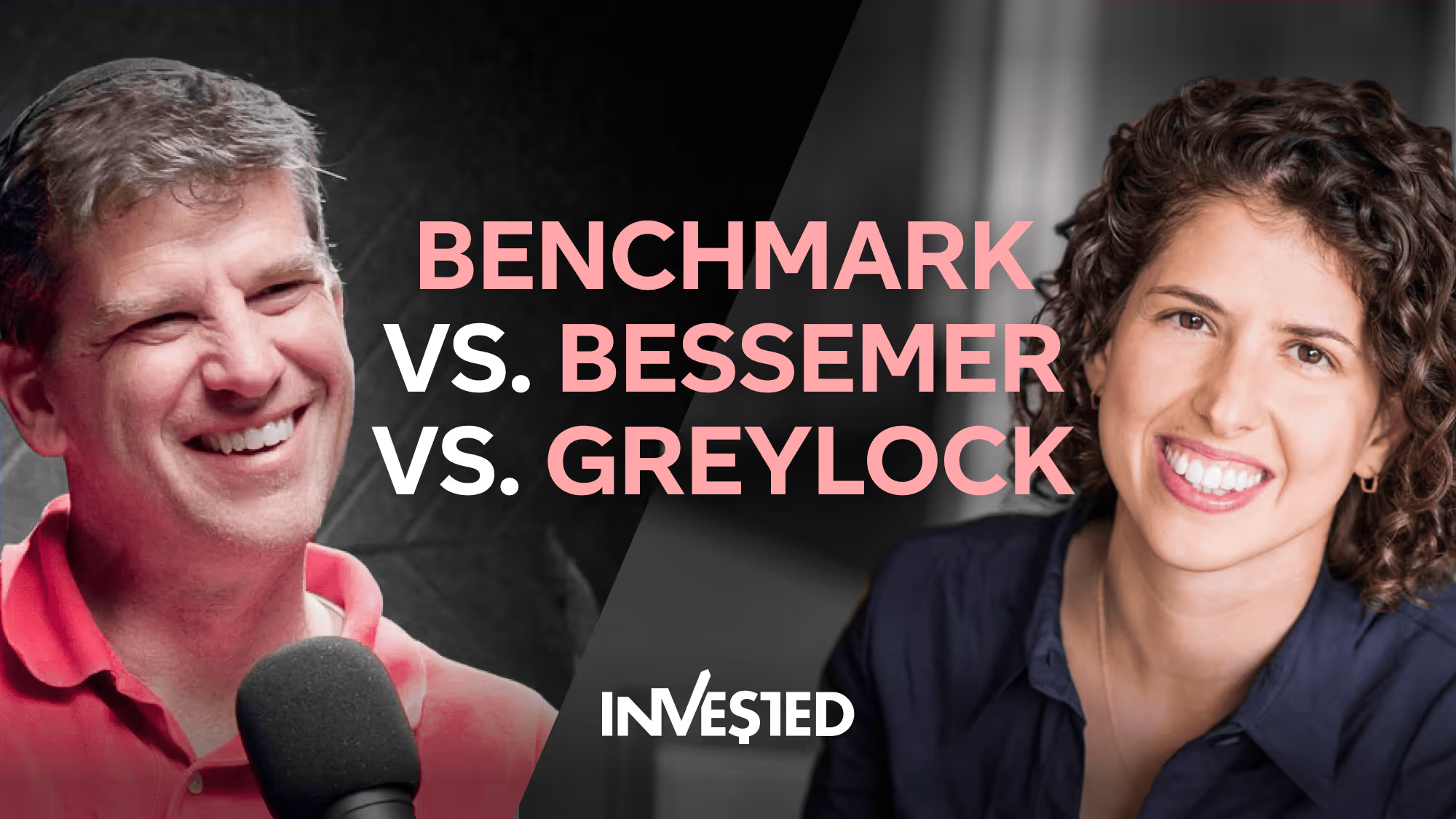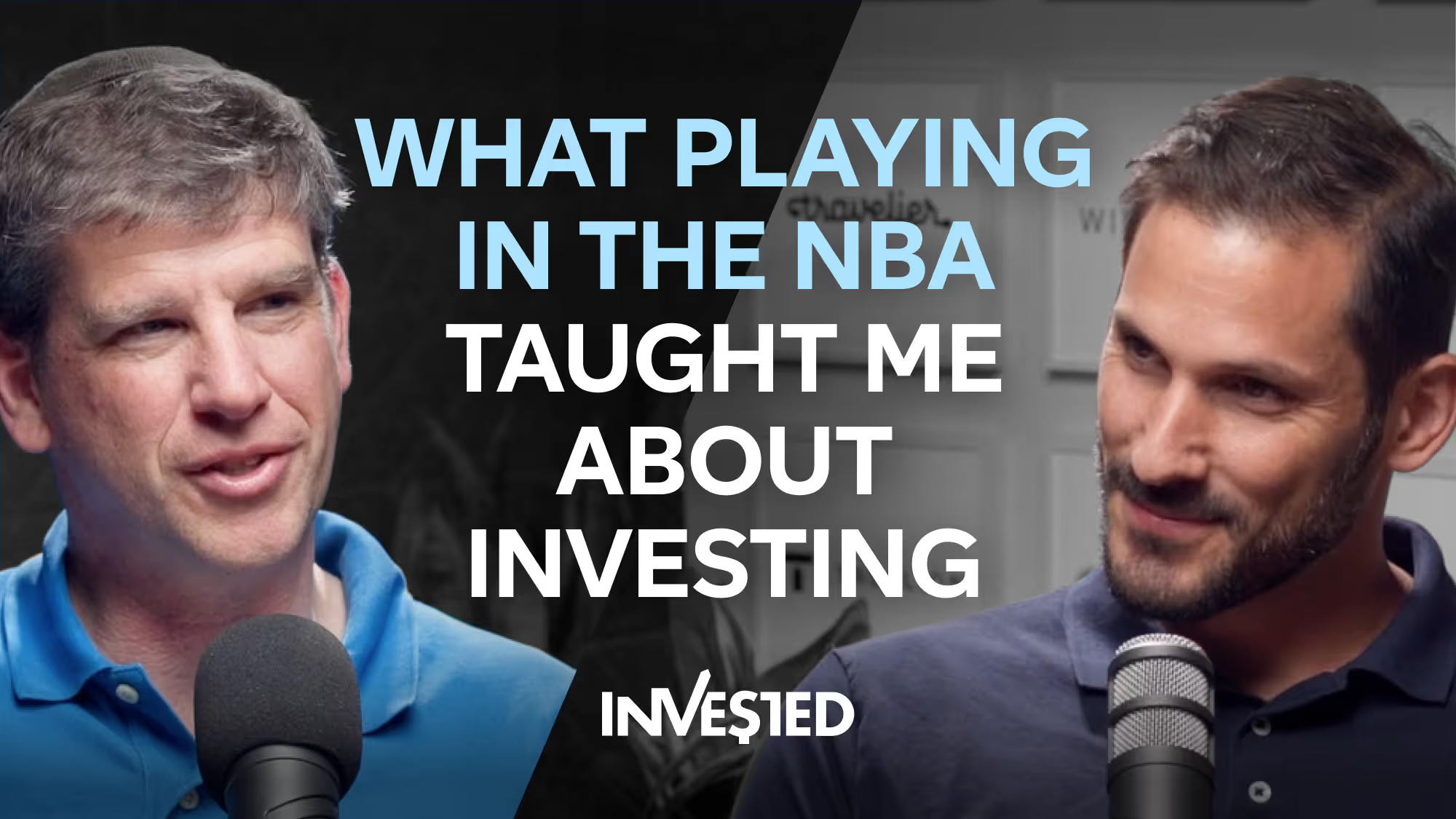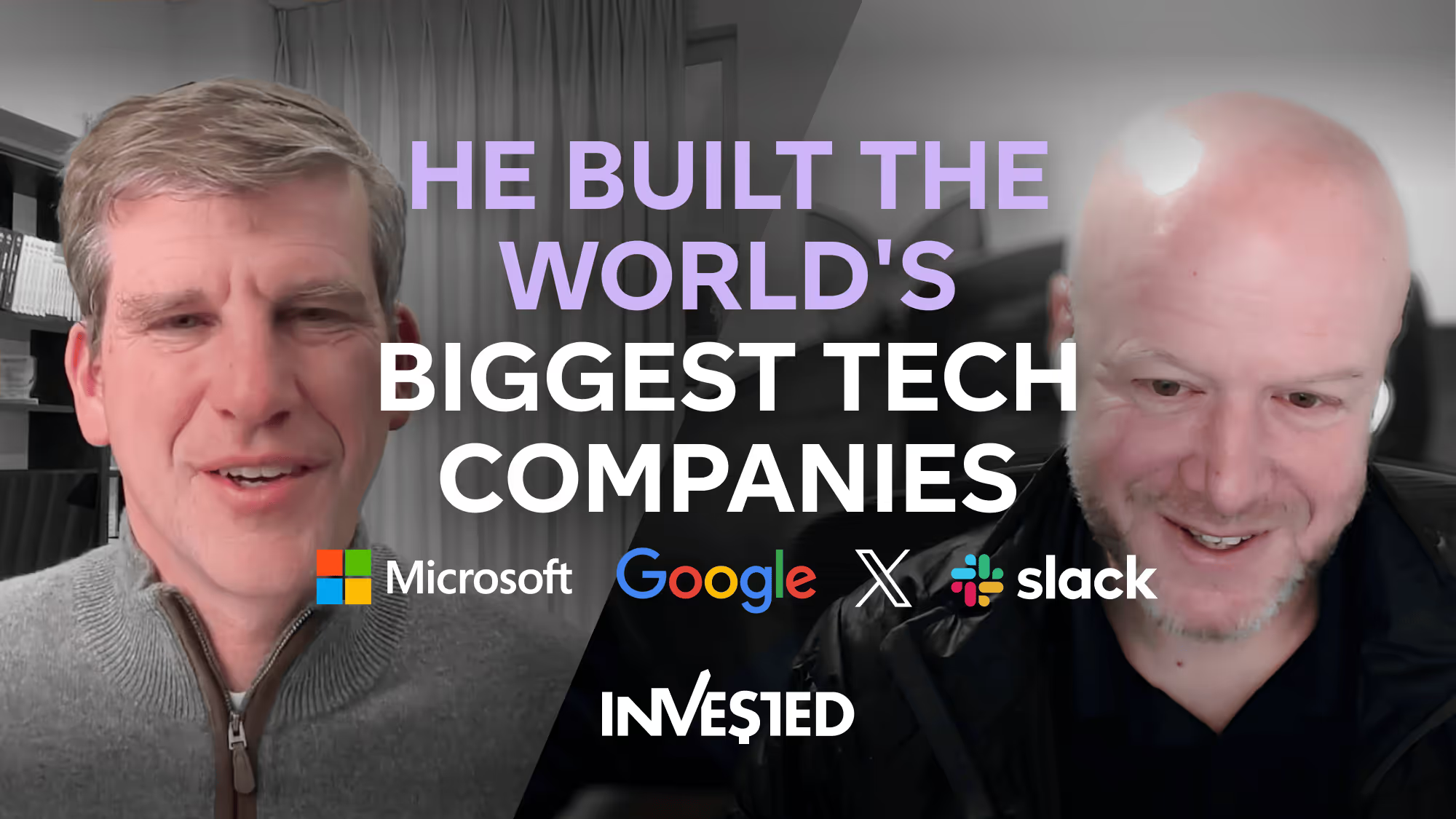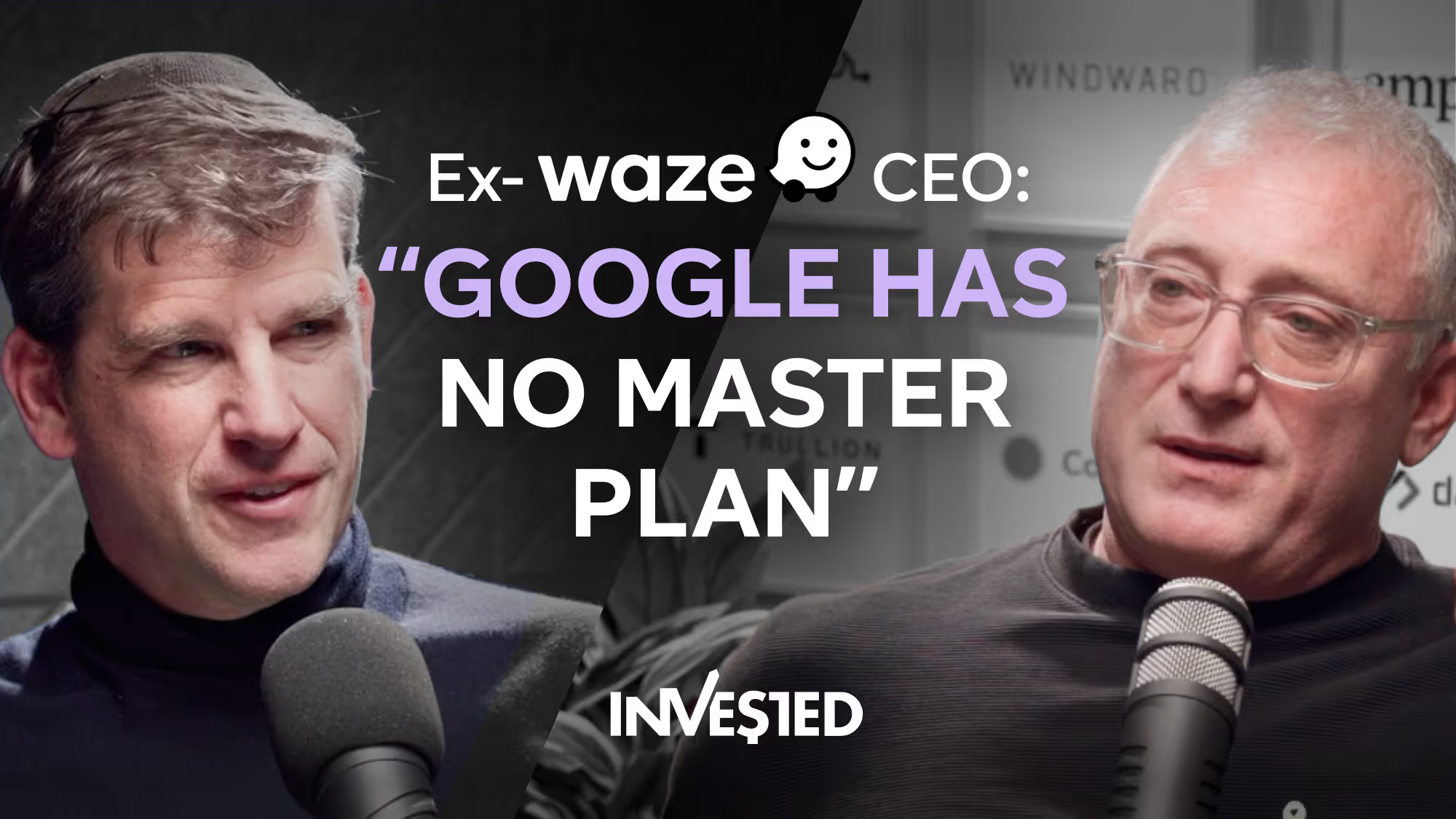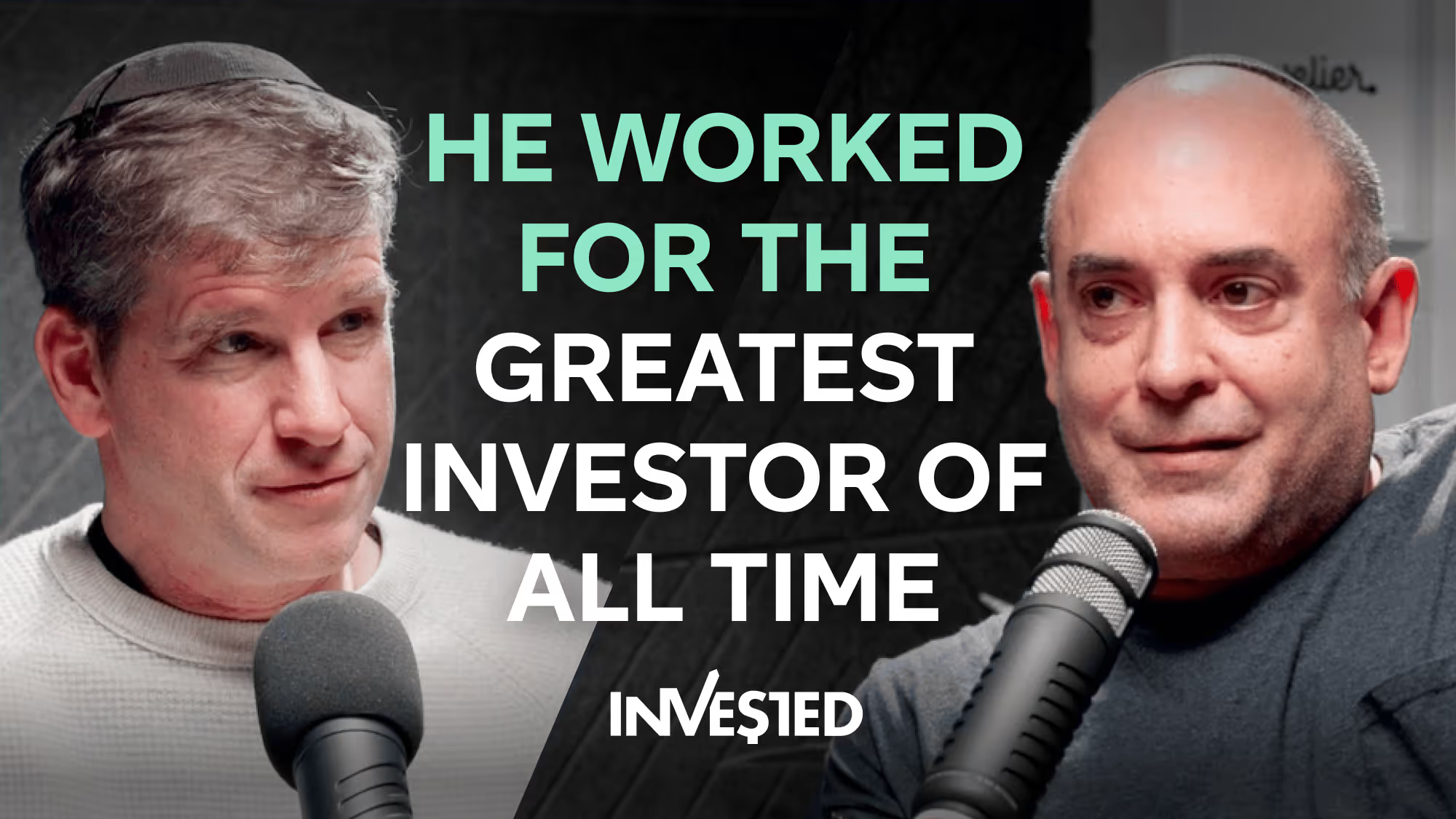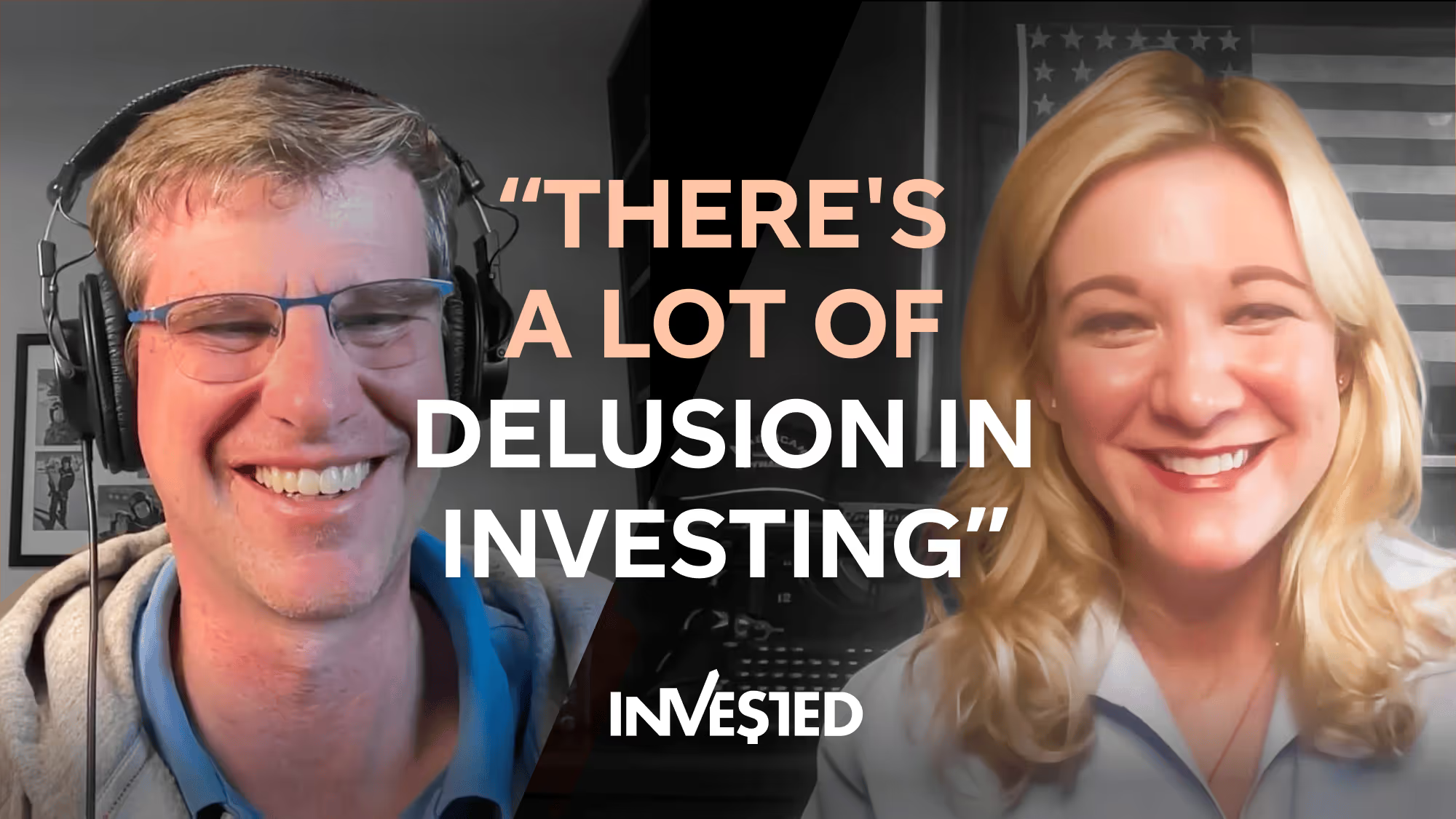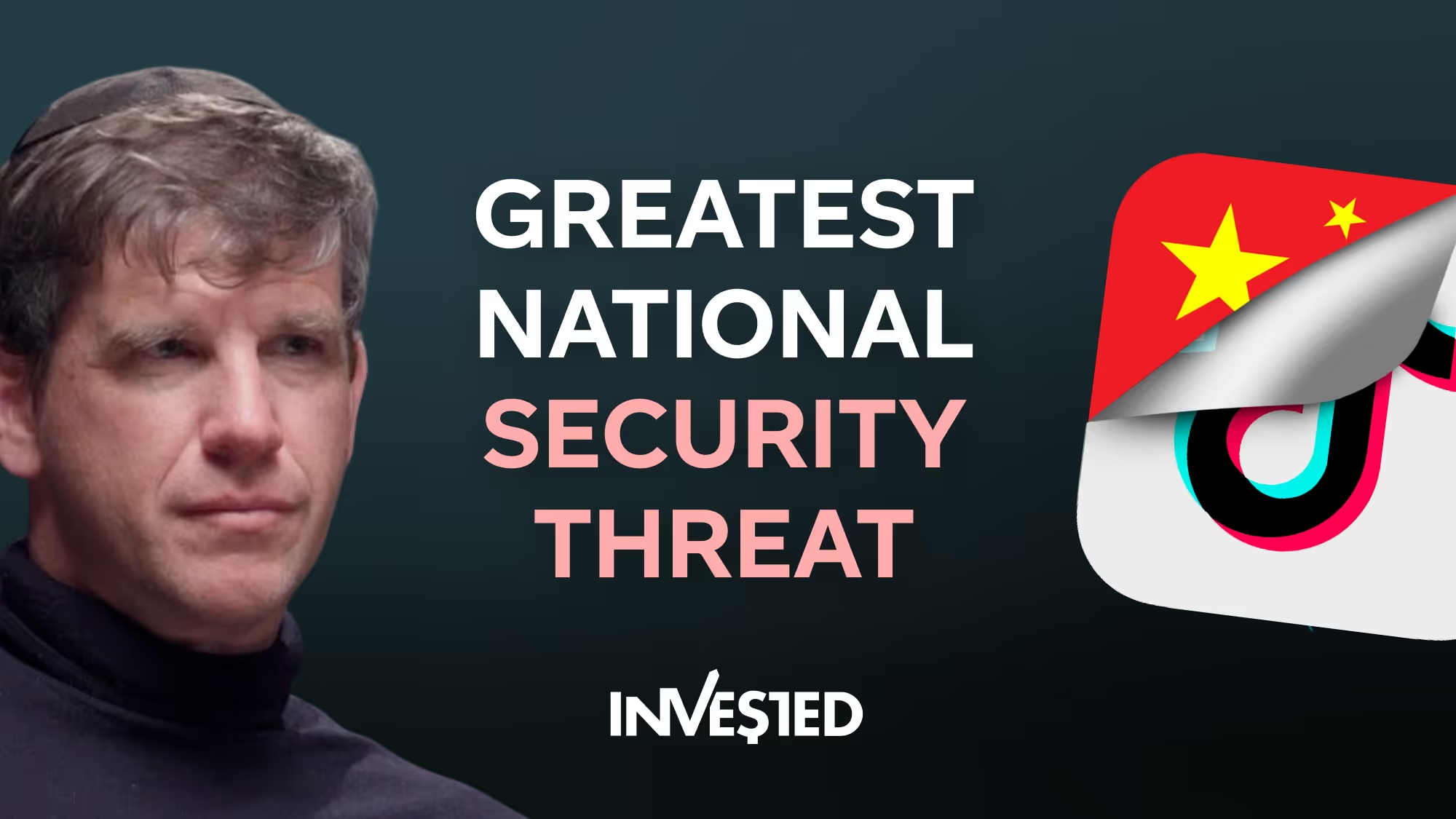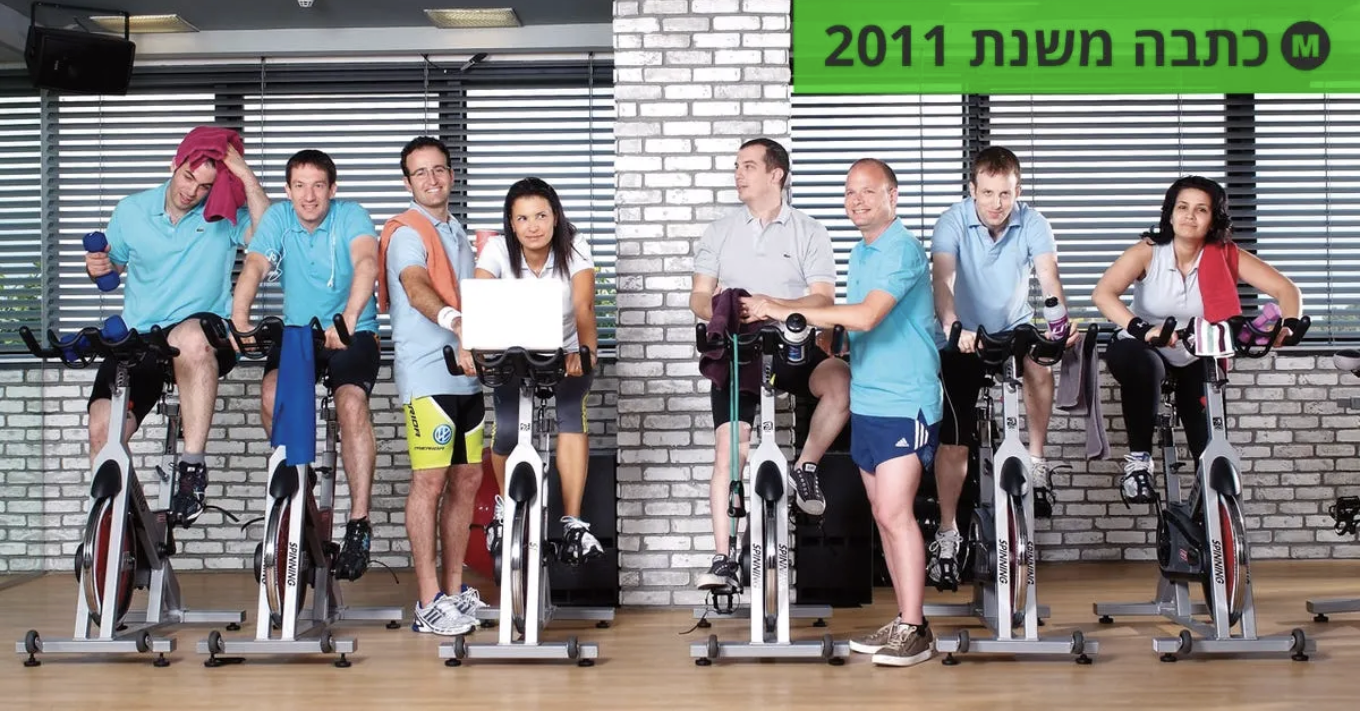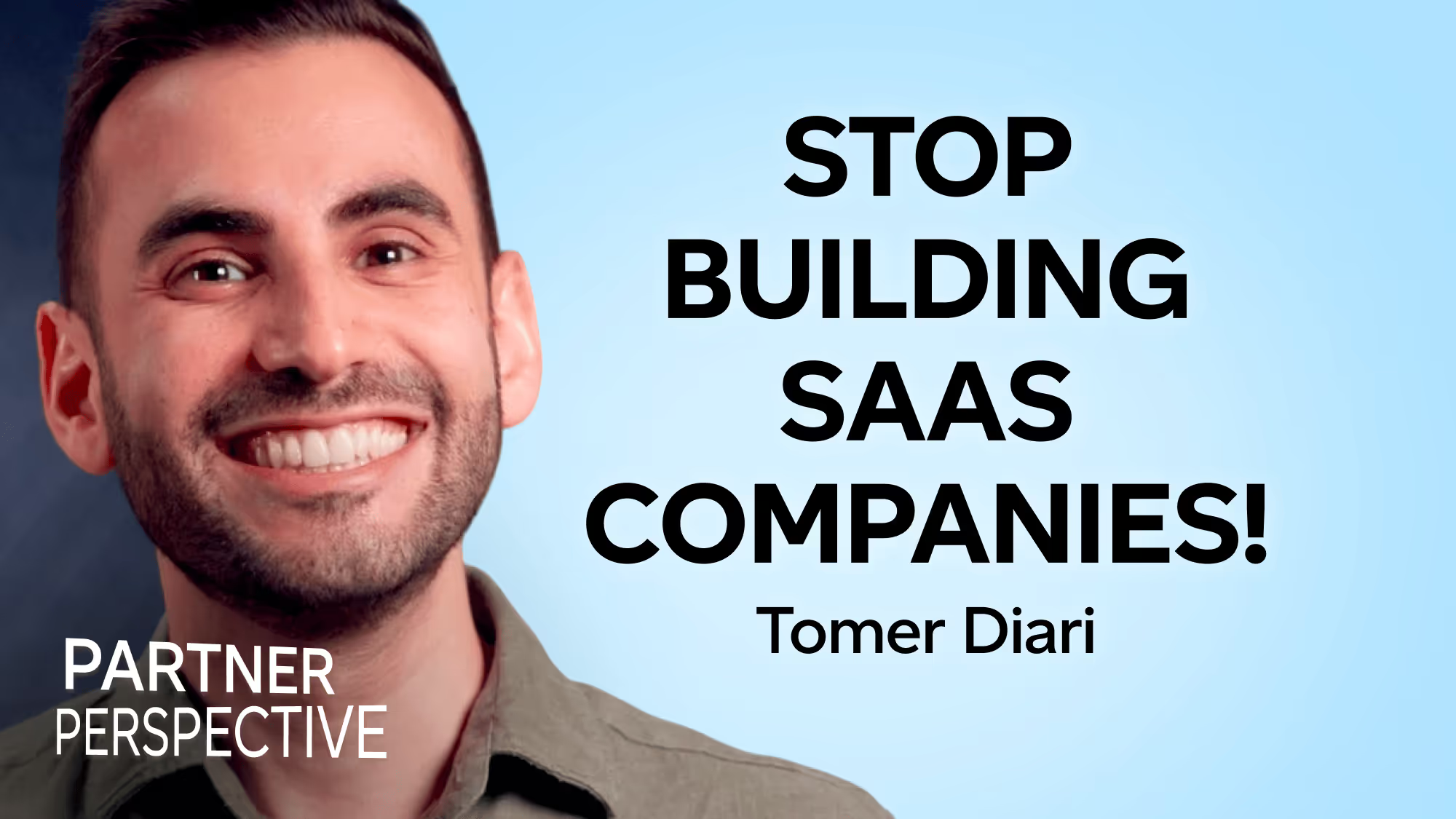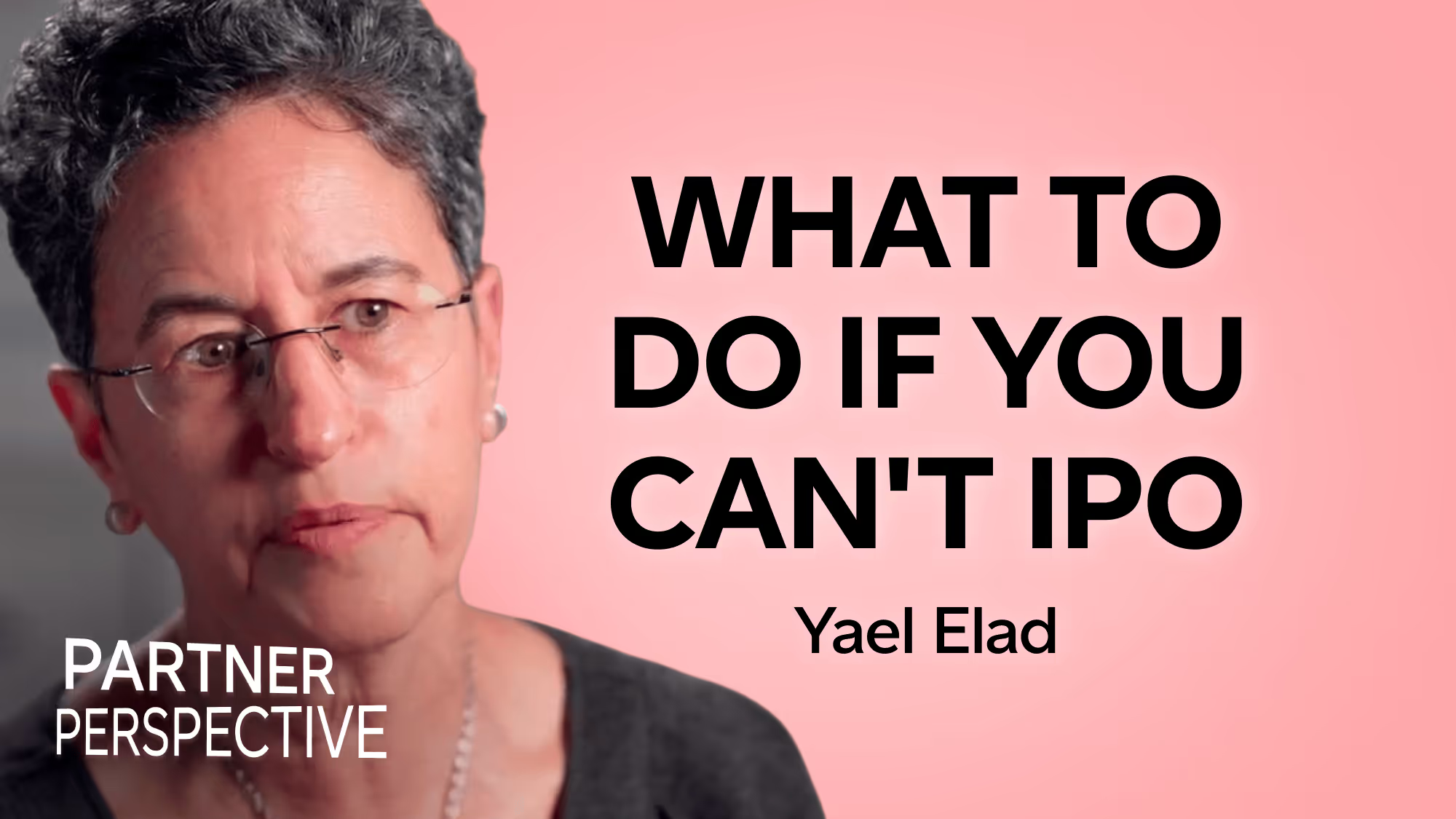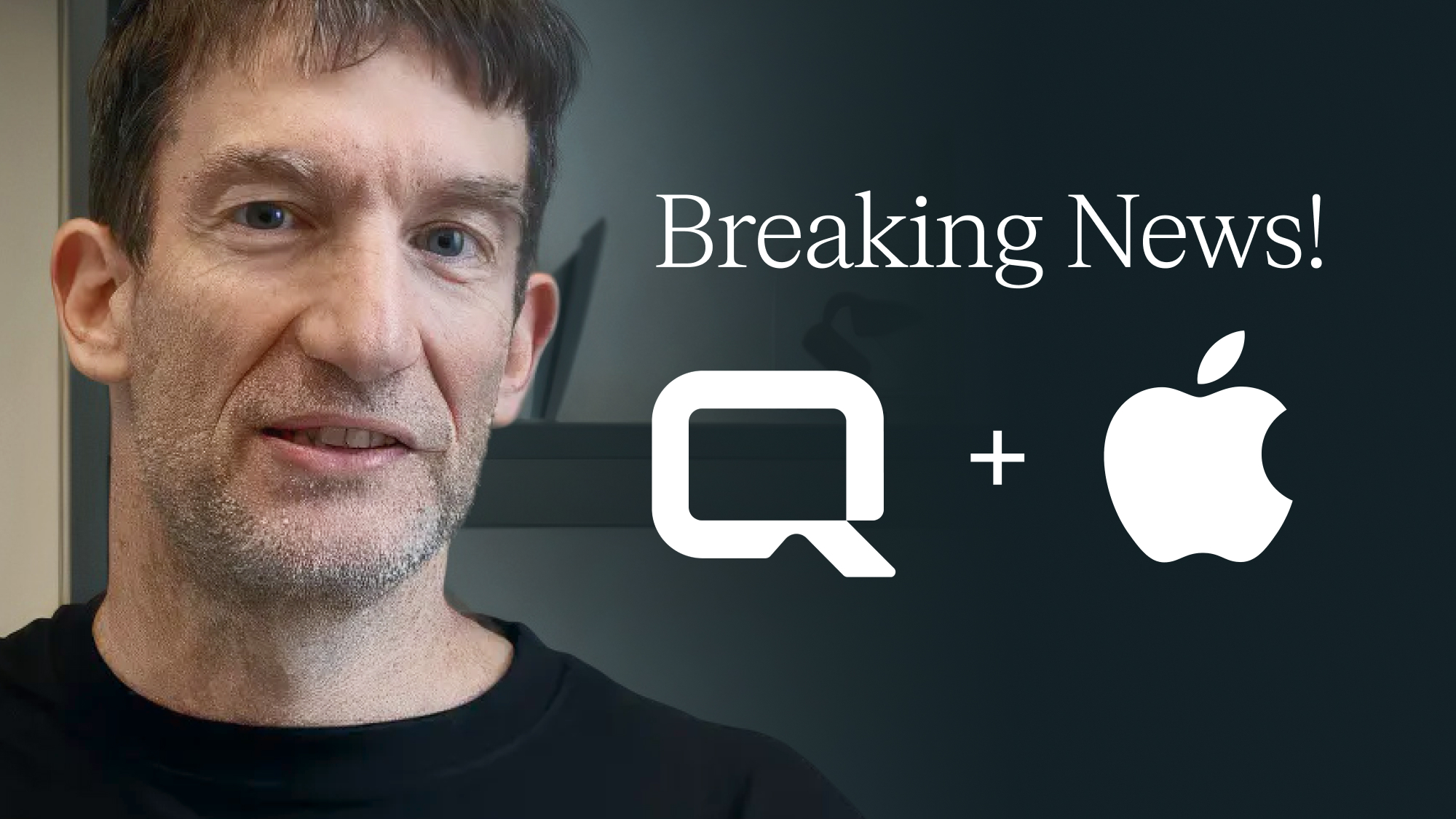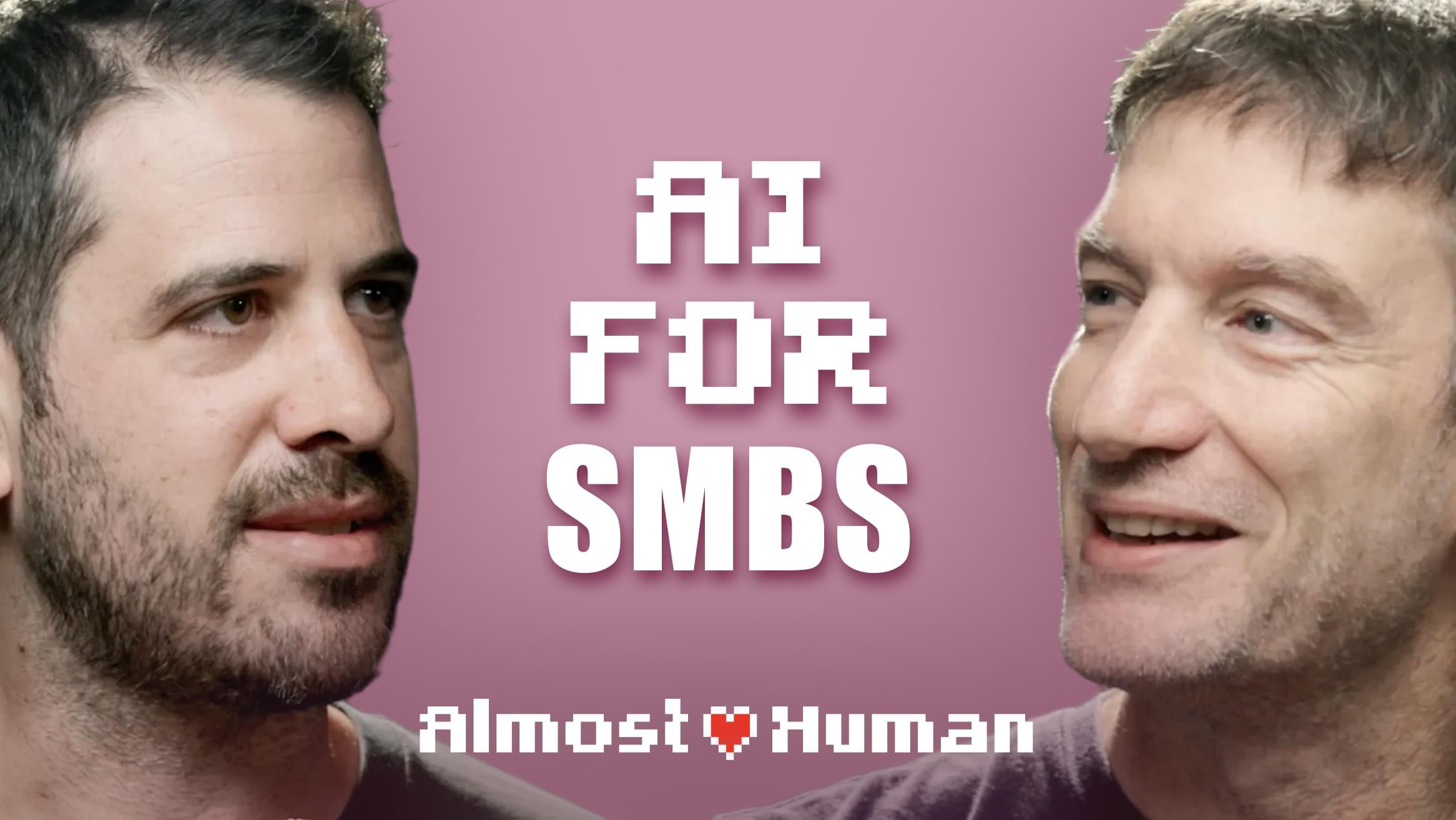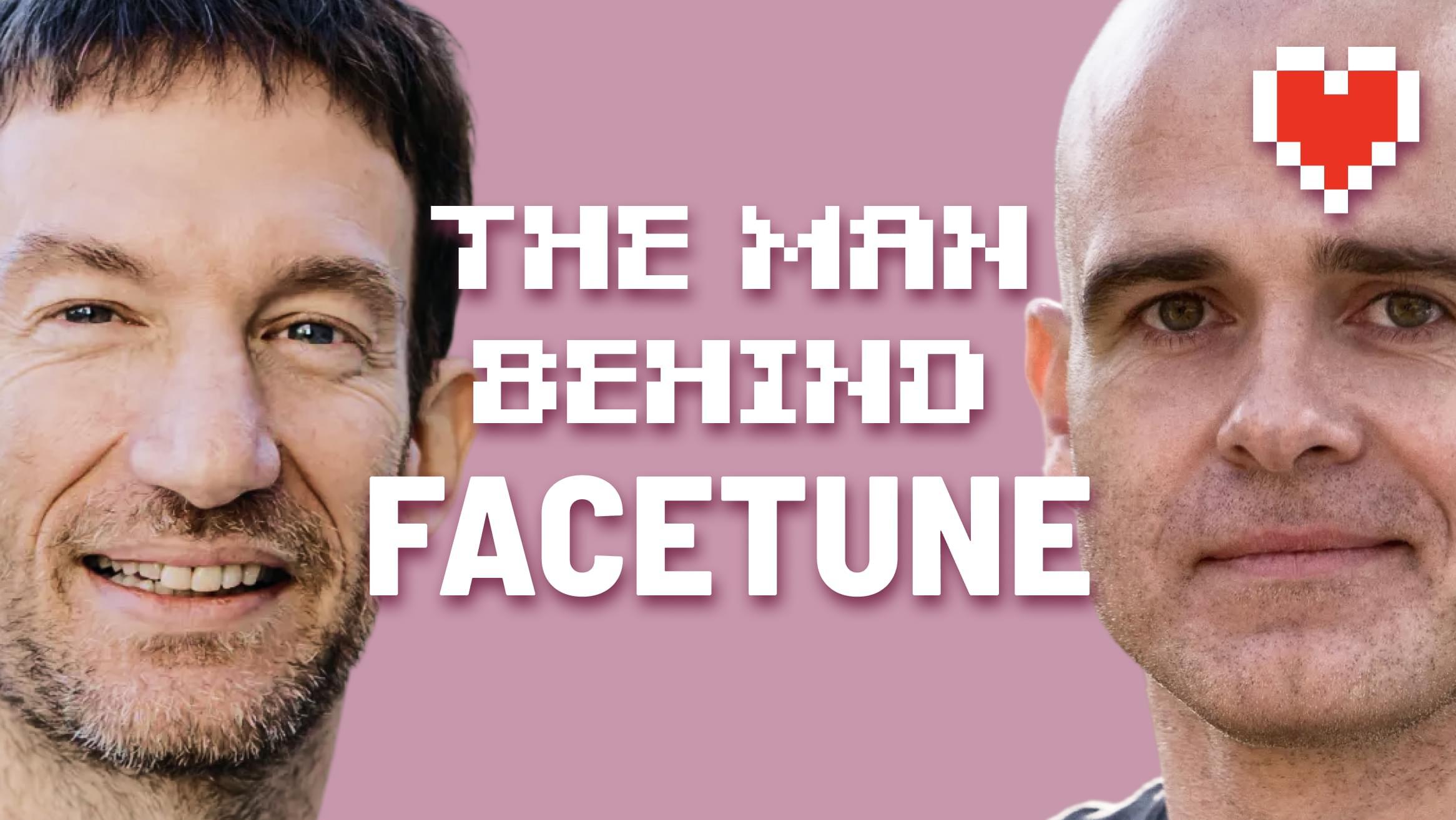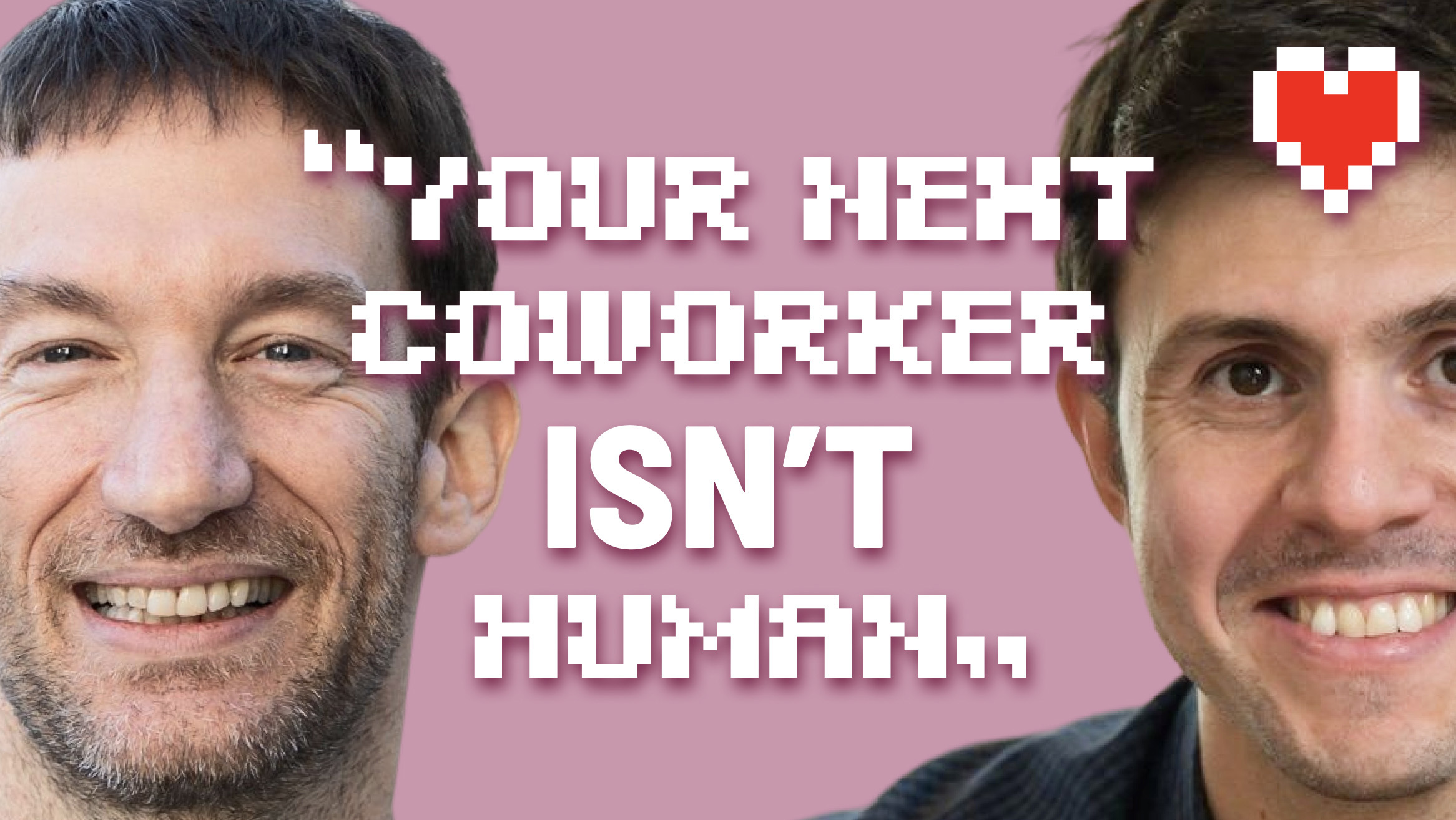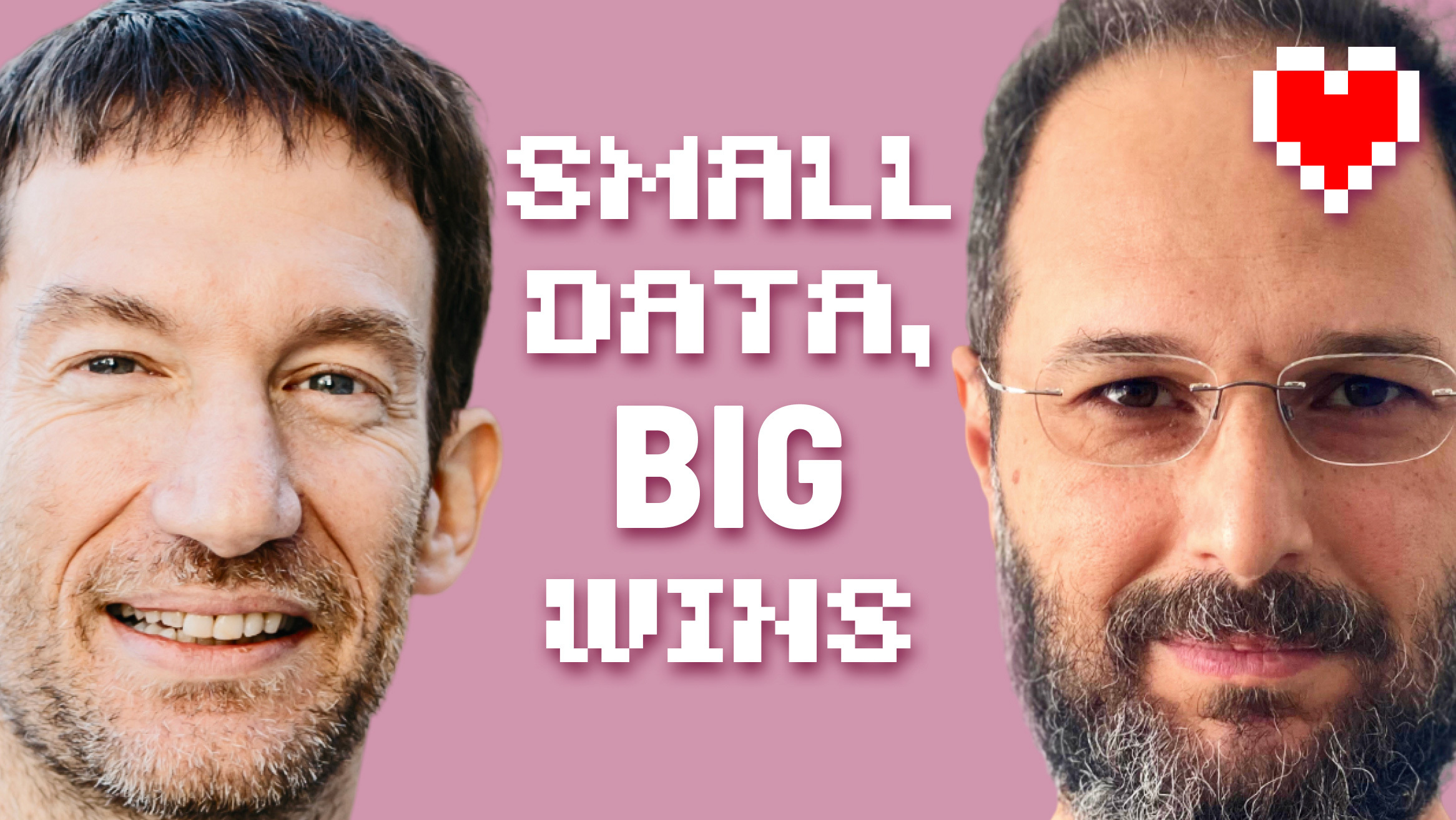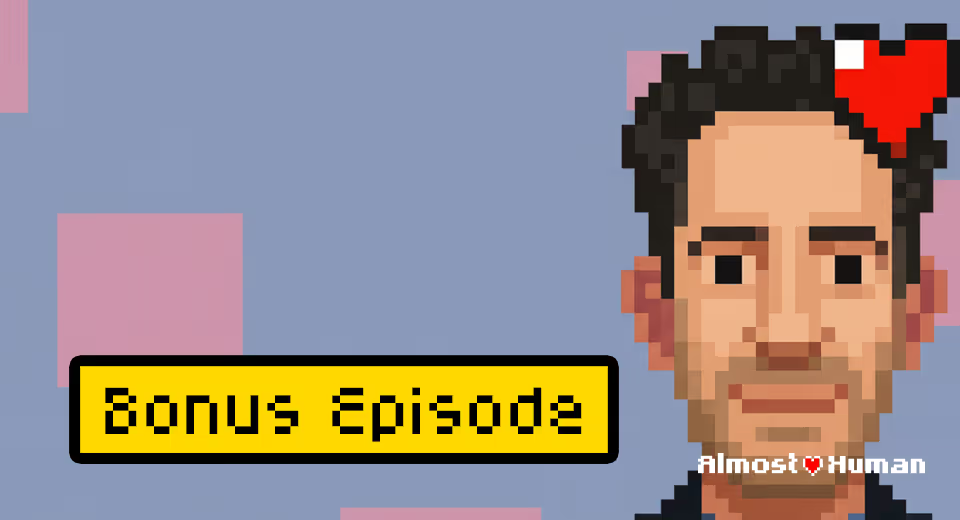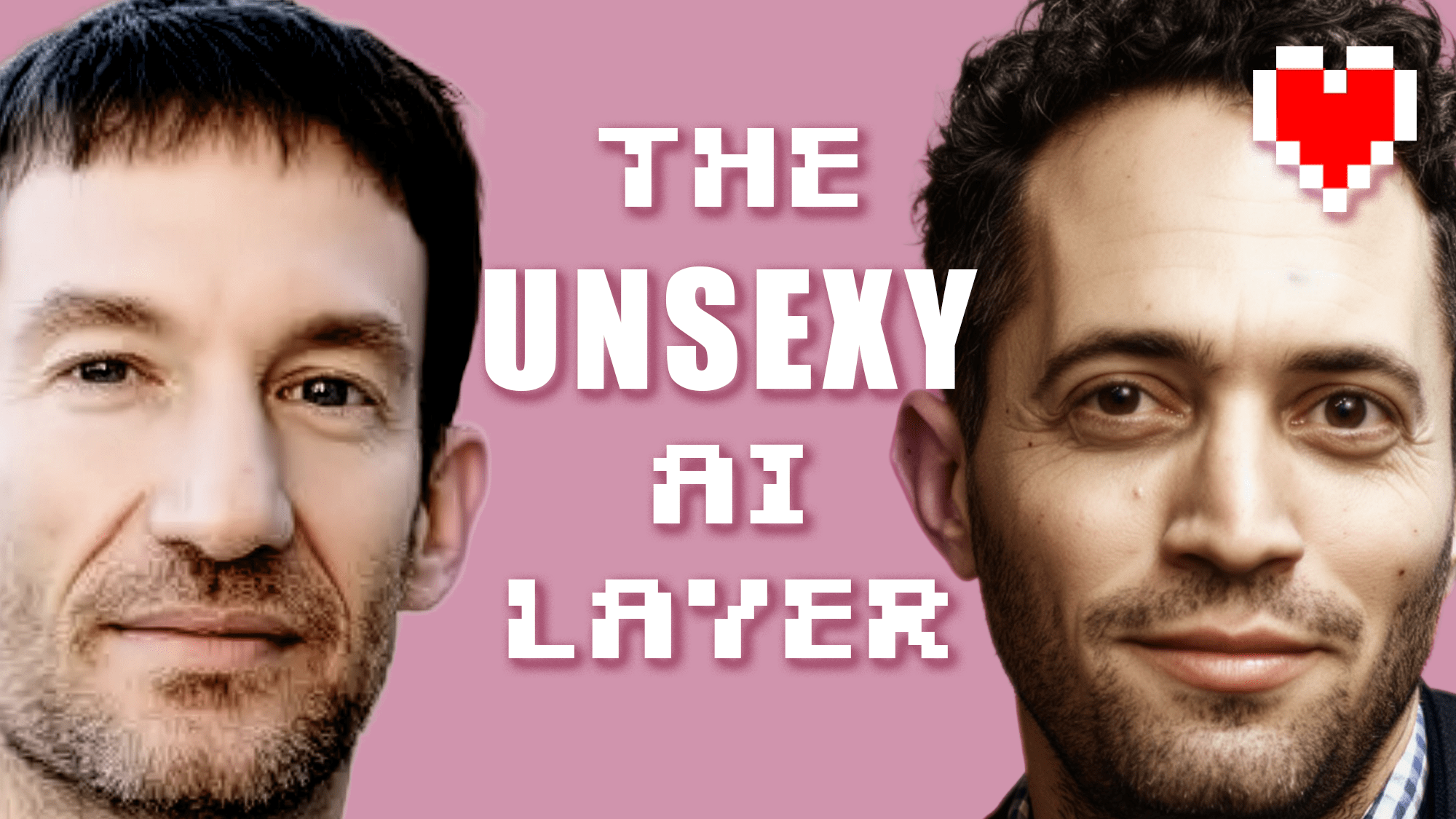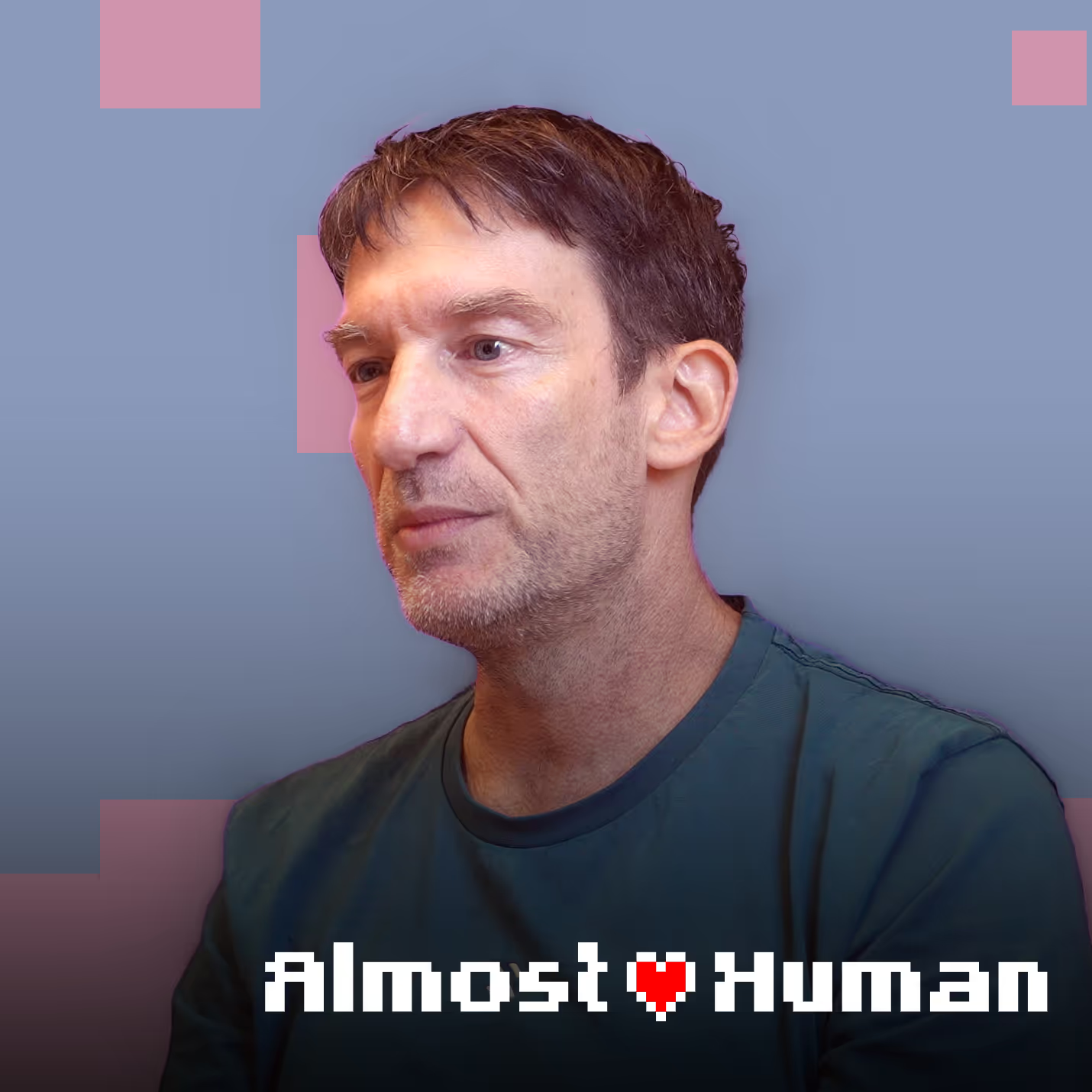Nuseir Yassin
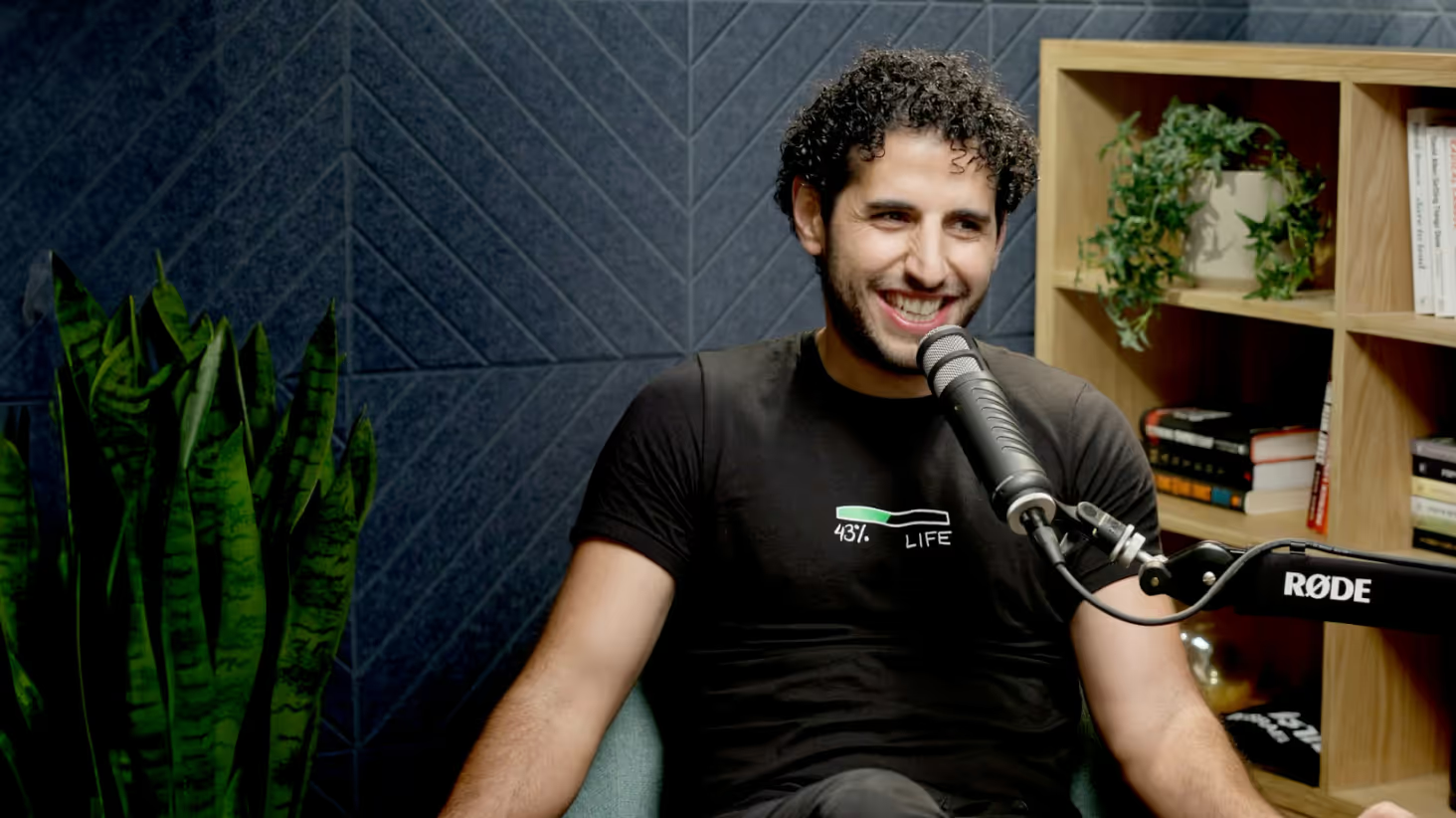


How can values create value? On this podcast, Michael Eisenberg talks with business leaders and venture capitalists to explore the values and purpose behind their businesses, the impact technology can have on humanity, and the humanity behind digitization.
Nuseir Yassin



How can values create value? On this podcast, Michael Eisenberg talks with business leaders and venture capitalists to explore the values and purpose behind their businesses, the impact technology can have on humanity, and the humanity behind digitization.
Nuseir Yassin
Nuseir Yassin
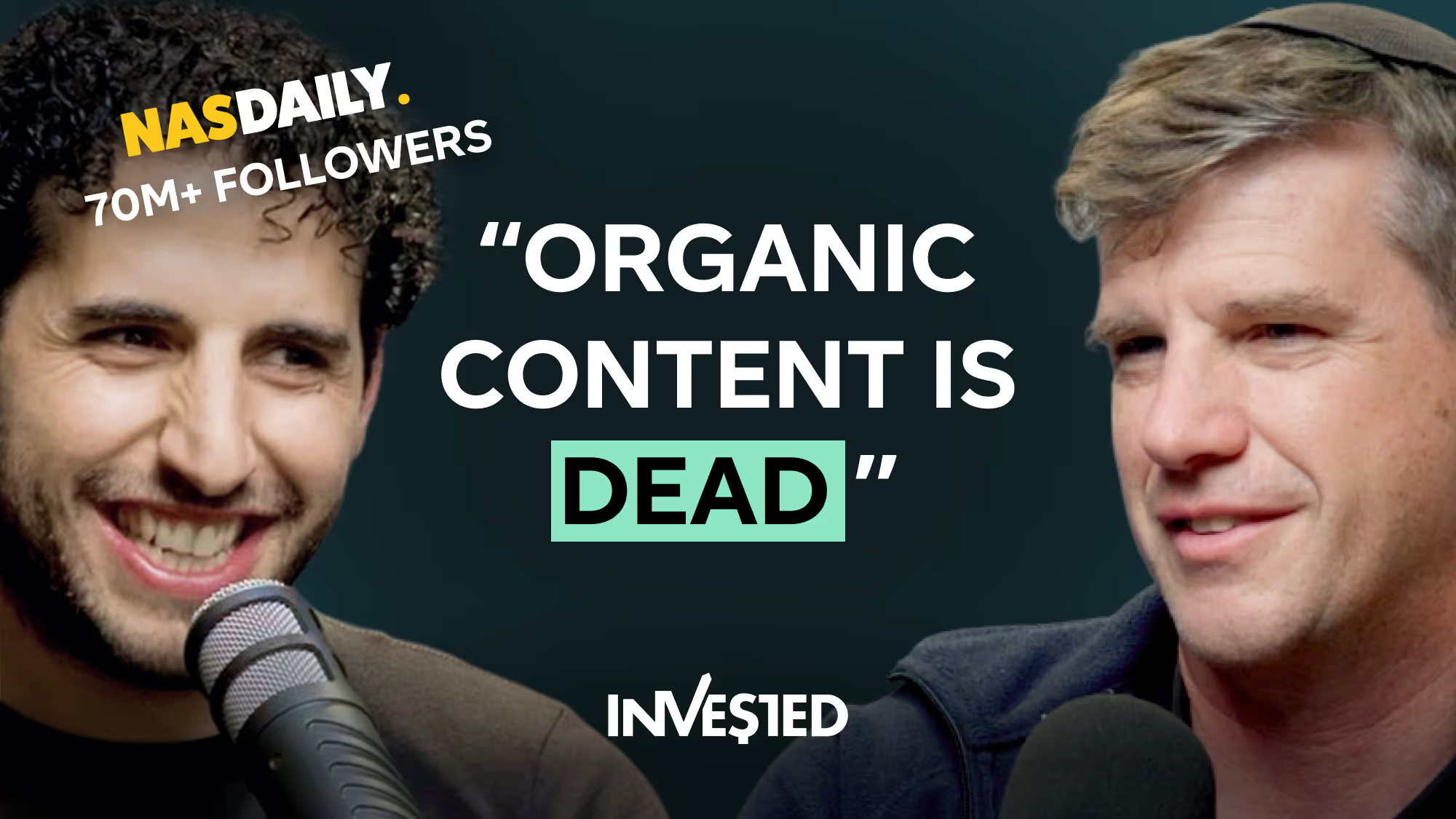
Nuseir Yassin
Nuseir Yassin
02:00 – Nas Daily First 270 Failures and One Viral Video
03:40 – When Success Makes You a Target
06:20 – Redefining Winning
08:40 – The One-Minute Revolution
11:30 – Using AI to Bridge Cultures
15:23 – “I Feel Israeli”: Identity and Belonging
21:07 – From a Village in Israel to Harvard
24:47 – The Power of Saying Yes
27:18 – The Golden Age of Solopreneurs
29:28 – Building Nas.io and the Future of Work
33:30 – Finding Talent Where Others Don’t Look
38:00 – Why Organic Reach Is Dead
44:45 – Discovering Hidden Global Talent
45:54 – Founders, Investors, and Control
49:50 – The Hardest Videos to Make
52:00 – Creator. Entrepreneur. Bridge Builder.
56:00 – The Cost of Bridge-Building
57:50 – Gratitude and the People Who Believed First
On this episode of Invested, Michael sits down with Nuseir Yassin - better known as Nas Daily. Nuseir rose to fame by taking on an ambitious challenge: creating 1,000 videos in 1,000 days. After graduating from Harvard, he made the bold decision to leave a stable engineering job in America to pursue content creation full-time. More than eight years, 68 million followers, and thousands of videos later, Nuseir has connected people from 197 countries through his signature one-minute videos across platforms. Today, while continuing to be one of the world’s most influential content creators, Yassin is the Founder and CEO of Nas Company - an ecosystem of businesses transforming how people connect, both online and offline.
Please rate this episode 5 stars wherever you stream your podcasts!
Nuseir Yassin (00:00.066)
We were the best in the world at making one minute videos. I don't know what the hell we're doing here talking for one hour.
Michael Eisenberg:
Because it turns out you have a lot to say.
Nuseir Yassin:
Winning was getting to Harvard, then winning was getting a job, winning was getting a million followers, then winning was getting a million dollars. We've finished those things.
My controversial thing is that Jews and Muslims should get along.
Michael Eisenberg:
It's controversial, isn't it?
Nuseir Yassin:
If you're dumb as hell. Okay, I think I'm gonna get canceled by the end of this podcast.
And my other controversial statement is that organic content is dead.
I can never be Egyptian. I can never be Danish. I can never be British. But I feel like I can be Israeli.
I think now entrepreneurship is the easiest way it's ever been.
It's an AI platform for solopreneurs to find customers and sell online. That's Nas.io.
Here's what I learned. You should never apologize for who you are.
Michael Eisenberg:
Welcome back to another episode of Invested. I'm here with someone who's at this point a reasonably old friend.
Nuseir Yassin:
Yes indeed.
Michael Eisenberg:
Nuseir, welcome.
Nuseir Yassin:
You can call me Gavin. That's my nickname.
Michael Eisenberg (00:58.377)
Gavin? Where'd that come from?
Nuseir Yassin:
Just to get more views on this podcast.
Michael Eisenberg:
The reference is to Gavin Baker, who was on a previous podcast. So we said right before we came on air that we're just gonna jump right in. We're gonna jump right in, okay? You're like one of the OG content creators of all time.
Nuseir Yassin:
Yes, sir.
Michael Eisenberg:
Is that fair?
Nuseir Yassin:
I think that's fair.
Michael Eisenberg:
You're very humble too.
Nuseir Yassin:
Yeah, it's been nine years. It feels like 900 years.
Michael Eisenberg (01:23.842)
How did you get into content creation?
Nuseir Yassin:
Look, there was this interview by Zuckerberg that said, Zuckerberg said, “I will not be surprised if 70% of the Facebook feed is videos in the future.” Back then it was just text and images. And I saw that and I was like, “Holy shit, he's about to build the next YouTube.” There's no competition on Facebook. My mom goes on Facebook 25 times a day. On YouTube, never. There's a massive supply and demand inequality. I'm going to jump in and make specifically Facebook videos, because they're gonna be extremely viral, because all the viral mechanisms are there. And so I jumped on that. I quit my job, I left my H1B visa in New York, and I just went to Kenya. And I just started making those videos.
Michael Eisenberg:
In Kenya?
Nuseir Yassin:
In Kenya.
Michael Eisenberg:
Why in Kenya?
Nuseir Yassin:
It's just a lot more interesting than the Upper West Side.
Michael Eisenberg (02:08.408)
And what were the videos about?
Nuseir Yassin:
Do you agree?
Michael Eisenberg:
Yeah, well I've never been to Kenya. I just spent a lot of time in the Upper West Side. When I grew up on the Upper West Side, it was more interesting, for good or for bad.
Nuseir Yassin:
Look, if you want to make interesting content, you just got to live an interesting life. Simple as that. You cannot be a boring individual, because your content will be boring. So I was like, “OK, my life is really boring in this Manhattan life. And I'm really poor. I'll be really rich in Kenya. And I can make a lot more interesting content.”
Michael Eisenberg:
What was the first content you made?
Nuseir Yassin (02:47.47)
Hey, guys, I'm in Kenya. Let's make a video. This is for you number one, one minute. See you tomorrow. Then the next video was like, “Hey guys, let's talk about Kenyan food.” Then everything failed, right? The first 270 videos failed. Then video number 271 succeeded.
Michael Eisenberg:
What was it?
Nuseir Yassin:
It was in Thailand, and it was like, how cheap is Thailand? I was like, “Hey guys, I'm in Thailand, and oh my god, there's 30 cent meals.”
Michael Eisenberg:
So it turns out, you don't have to be rich. I mean, being rich in Kenya was overrated. You should just be poor in Thailand.
Nuseir Yassin:
Exactly. So I bought 200 meals for 30 cents a meal. And then, when was the last time you saw somebody buy 200 meals?
Michael Eisenberg:
Who'd you buy them for?
Nuseir Yassin:
The people at the restaurant.
Michael Eisenberg:
Why'd you do that?
Nuseir Yassin:
It's a lot more interesting than watching me eat. That's the whole point of content. You gotta say something or do something to make people notice.
Michael Eisenberg:
It was a stunt?
Nuseir Yassin:
Yeah.
Michael Eisenberg (03:30.326)
How many people asked you for them to buy them lunch afterwards?
Nuseir Yassin:
Actually, zero. I did not want to go down that route. I think Mr. Beast won that game.
Michael Eisenberg:
Mr. Beast won that game, huh?
Nuseir Yassin:
I don't want to give away free things.
Michael Eisenberg:
All right, so once you said that if 100% of the people like what you're doing, you're probably doing something wrong.
Nuseir Yassin (03:45.966)
You're a clown at a hospital.
Michael Eisenberg:
That's what you said?
Nuseir Yassin:
Yeah, if 100% of the people like what you're saying, you're a clown at a hospital making sick kids with cancer smile. Nobody hates that.
Michael Eisenberg:
Okay. You don't want to be loved. Why not?
Nuseir Yassin:
No! Name me one person who changed anything important in the world that has 100% love. Nobody. Nobody. Unless you're like a dictator in some, you know, North Korea.
Michael Eisenberg:
You have 100% of the vote!
Nuseir Yassin:
So I think I got to terms with the idea that, okay, I think the most I can get is 50 to 60% like, therefore 40%.
Michael Eisenberg:
That's a lot.
Nuseir Yassin (04:28.206)
Well, yeah, that 60% is, let's say 100 million, let's say 70 million followers, let's say 100 million people like Nas Daily. That also means there's 50 million people that want me dead.
Michael Eisenberg:
Dead?
Nuseir Yassin:
Dead.
Michael Eisenberg:
You worried about Charlie Kirk, something happening to you?
Nuseir Yassin:
Yes. Of course. I get bodyguards now.
Michael Eisenberg:
You do?
Nuseir Yassin:
Not in Tel Aviv, but I do get bodyguards.
Michael Eisenberg (04:39.086)
Because Tel Aviv is, I keep telling people, it’s actually the safest place on earth.
Nuseir Yassin:
For Jews and non-Jews.
Michael Eisenberg:
For Jews and non-Jews, exactly. It's the safest place.
Nuseir Yassin:
When I made those one minute videos for my mom to watch on Facebook, I didn't think I'd have to hire 10 bodyguards in my event in Thailand last month. You know, but I do.
Why?
Nuseir Yassin:
Because I am from the most controversial country in the world.
Michael Eisenberg:
And you say controversial things.
Nuseir Yassin:
My controversial thing is that Jews and Muslims should get along.
Michael Eisenberg (05:06.99)
That's very controversial, isn't it?
Nuseir Yassin:
If you're dumb as hell.
Michael Eisenberg:
It shouldn't be that controversial.
Nuseir Yassin:
OK, I think I'm going to get canceled by the end of the show.
Michael Eisenberg:
No, you're good. We don't cancel anyone here. This is a very liberal show.
Nuseir Yassin:
Really, is it that liberal? I'm gonna test you on that. But yeah, look, I think what happened is that Nas Daily became the second most popular Israeli creation after Gal Gadot on social media. Netanyahu is definitely much more popular.
Michael Eisenberg (05:35.246)
He's certainly more followed. I don't know if he's more popular, but he's more followed. He's subscribed to your point of view, which is, you don't necessarily have 100% popularity to be winning.
Nuseir Yassin:
I think he’s going for 20%.
Michael Eisenberg:
Yeah.
Nuseir Yassin:
But for many people, Nas Daily is the first time they see an Israeli person on their feed. Because it started in 2016. And when it started, I have like 5 million followers in the Middle East. That's 1% of the Middle East. In a different page, we have another like 3 million followers in Vietnam, on Nas Daily Vietnamese. OK, a Vietnamese person has never seen an Israeli on their TV until Nas Daily showed up. And of course, if you like Israel, then you like Nas Daily, but if you don't like Israel, then by association, you want Nas Daily dead.
Michael Eisenberg:
How do you know if you're winning?
Nuseir Yassin:
Well, which race?
Michael Eisenberg (06:26.062)
That's why I'm asking you. You know what? That's a good question. What's the race you're trying to win? What's the message you're trying to get across? By being non-popular, you must have a mission or a message. What is it?
Nuseir Yassin (06:37.73)
Okay, so first of all, there's subraces in my life, and there is one giant race. The subraces in my life is, winning was getting to Harvard, then winning was getting a job. Winning was getting a million followers, then winning was getting a million dollars. Right? We've finished those things. Now that that race is over, my current race is building a billion-dollar company. So entrepreneurship, creating a thousand jobs internally and getting to a billion valuation. I want to be the first non-Jewish Israeli to build a unicorn, because fucking 79 unicorns, and none of them are Arabs! So that bothers me.
I mean, being too transparent with everybody here, but that's my current race. My forever life race. I, unfortunately, I was born with it, which has something to do with Jews and Muslims, Jews and Arabs in the Middle East, like sort of, building bridges and bringing people together. So I was just inside Arabia yesterday, and I got into an Uber. And the Uber driver asked me “Where you from?” And I said, “Israel,” in Arabic, which is a big no-no.
And he's like, “I want to get you out of my car. I want to get you out of my car.” And I was like, “Wait a minute, man. I'm Muslim as well. And 20% of Israel is not Jewish. It's Muslim. And let's talk about it.” And then the more I talked to him in that 20-minute thing, by the end of it, he's like, “When Saudi Arabia and Israel make peace, I want to be the first one to visit Israel.” He's like, “Wow, that's cool.” So there was an opportunity to change someone's mind. It's very easy in the GCC. So that's probably my life race.
Michael Eisenberg:
You’re a one-man walking Abraham Accords. One of my great failings is, I've been living here 32 years. I still speak Hebrew. My Hebrew is fluent, but I speak with an American accent, but I should have learned Arabic when I came here. It was a big mistake.
Nuseir Yassin (08:18.508)
That is a big mistake.
Michael Eisenberg:
It was. Yeah.
Nuseir Yassin:
You can learn it today.
Michael Eisenberg:
On Nas.io. We're gonna talk about that. Now you're gonna do Arabic lessons for me on Nas.io. We'll talk about that in a second. So, you started because your mom was on Facebook. Is your mom still on Facebook?
Nuseir Yassin:
No, she's not on Facebook anymore. She's on Instagram.
Michael Eisenberg:
Okay. So there was no TikTok and no Instagram when you got started.
Nuseir Yassin:
Correct.
Michael Eisenberg:
And now there's TikTok and Instagram, right? And you made this kind of short form content before it was popular.
Nuseir Yassin:
Correct. One-minute videos.
Michael Eisenberg:
One-minute videos. What did you understand?
Nuseir Yassin (08:47.67)
I understood that humanity is going into an ADHD world, and nobody's got time for 10, 20-minute long videos unless you're watching TV. But if you're on the go, it is impossible to capture your attention for 10 minutes, right? You're just too ADHD. And so it's simple. If I don't have time 10 minutes to watch this, my mom definitely doesn't. You don't. Let me just say everything I have to say in one minute and call it a day. That was the lesson, then, and it paid off.
When YouTube shorts started, what was the limit? 60 seconds. Instagram reels, 60 seconds. TikTok was basically 60, actually it was like 30 seconds. But when that happened, I was at the right place at the right time, and Nas Daily just freaking blew up because it was the perfect format for the perfect social media platform. We were the best in the world at making one-minute videos. I don't know what the hell we're doing here talking for one hour.
Michael Eisenberg:
Because it turns out you have a lot to say. You have a pent up frustration of having to only do it in 60 seconds, and I'm gonna let you release all that frustration here.
Nuseir Yassin:
I could see it.
Michael Eisenberg:
Nuseir, are you okay? Breathe.
Nuseir Yassin:
I'm actually, I'm feeling much better.
Michael Eisenberg:
You'll have plenty of time. So you just like fed the cocaine addict crack, right? Which is like, I got no attention span, and so why don't I give more 60 second videos? Is that dumbing down the world?
Nuseir Yassin (10:07.072)
Absolutely. Yeah, I'm 100% proud of it. Look, I am like Chief Dumbing Officer, CDO. The point of that is, success for me is, if I make a piece of content, Bill Gates understands it ,and a driver of an Uber in Dubai understands it. That's success. And actually, Bill Gates follows Nas Daily, and many Uber drivers in Dubai also follow Nas Daily.
You have to speak slow and simple enough to reach the masses. You use text on Twitter because you reach the top 1% of the world, the smartest people in the world. And that's really, that's your game. You're reaching the most influential people in the world. My job is to take your message and make the remaining 99% understand it. So we just need to know where do we fit.
Michael Eisenberg:
How do you know if you're successful at that? I don't know if I'm successful at trying to talk to people with my text, but how do you know you're successful with your video content?
Nuseir Yassin:
Unfortunately in this world, success boils down to numbers. Number of views, number of likes, number of comments, number of followers. It's a very... You know, if your job is scale, then that's all that matters, number of views. If your job is influence, you actually don't need a lot of views. You are more influential than me.
Michael Eisenberg:
Probably not.
Nuseir Yassin:
Probably yes, actually. Because one, you manage a billion dollars in AUM, okay, and you are close to the White House. That is real influence.
Michael Eisenberg (11:33.496)
You'll be the first billion dollar Arab entrepreneur in Israel. That’s a 1 of 1.
Nuseir Yassin:
Yeah, you know, but half of it will not be my money, it’ll be the investors’ money.
Michael Eisenberg:
That makes you really well connected. So you speak a lot about coexistence, and we just touched on it now, and I really want to get to Nas.io in a second. So one of things you've said is that you want to use AI to combat antisemitism. What does that mean?
Nuseir Yassin:
Why is it hard to reach an average kid in Yemen? Because there has never been a media channel in Israel, or in New York, or whatever, that speaks in Yemeni dialect on social media. It's just never been possible because it's just so expensive. The average cost of a piece of content is $3,000. Like with a presenter, a good editor on social media. The average revenue of that piece of content, you know how much? Zero. Like zilch. And so the financials obviously don't work.And going down. If not, yeah, I mean, can you run from zero? Probably minus 10. Social media will charge you for views at some point. So the model never works. So you only have two people pay for content. State governments like Qatar, Al Jazeera, which is $200 million a year, or philanthropies that give you a million dollars a year and good luck. But that's not enough.
Now the price of content has gone down 99%. Now the content is still like 70% there. It's not as good yet, but give it a year. Now you can make content for a dollar. If you can make content for a dollar in every language, in every country, in every social media platform, what can you do?
Michael Eisenberg:
But won’t it be flooded out by stuff that is less palatable?
Nuseir Yassin:
Look, the whole internet is flooded out by iPhone videos already. It's become so easy to make iPhone videos.
Michael Eisenberg:
I know but it’s all lost. People with ADHD, as you say, you know, what do they get?
Nuseir Yassin (13:38.388)
Absolutely. I think the genius is in the curator, not the creator. Whoever can curate one shot with another shot with the right music is the genius. It's not who can create the shot. If you're a good
Michael Eisenberg:
Right now TikTok's the curator. Al Jazeera's the curator. People with algorithms and a lot of dough.
Nuseir Yassin:
TikTok is a form of curator, but I am also a curator. I curate topics. I curate the different shots. I curate the music. I decide on this, but anybody can make the same videos that I can make. For example, now I made a hundred videos in a hundred days that's a hundred percent AI. Was one of the first channels in the world to take that risk. And I got a lot of trouble for it, because I said, “I'm not getting in front of a camera. You're going to see an AI version of me talking about things in the past.”
So for example, we recreated when Israel did Operation Solomon. I don't know if you saw that–
Michael Eisenberg:
I did not.
Nuseir Yassin:
–but you can, you know, we can see a thousand people on a plane by a lot, you know, being rescued from Ethiopia, going to Israel. You can recreate it now. So you can bring back history. So when we did that, anybody could have made that video, but nobody could have put Operation Solomon, the script, the shots together. That's the genius. It's not the creating of the shot. Anybody could do it.
Michael Eisenberg (15:01.73)
Why'd you make that video?
Nuseir Yassin:
It's interesting. It's interesting.
Michael Eisenberg:
Why is it interesting?
Nuseir Yassin:
It was the most number of people on a plane ever in the history of humanity. One thousand eighty one. By the time it landed, three people were born. So it became one thousand eighty three or eighty four. Is that interesting?
Michael Eisenberg:
That is interesting.
Nuseir Yassin:
There we go.
Michael Eisenberg (15:23.192)
Does it connect at all–I think you said sometime after October 7th that you grew up as Palestinian Israeli and now you say you're Israeli first. Is it connected at all?
Nuseir Yassin:
Definitely, definitely. Yeah. I view it as my... Look, you're Jewish. You have a kippah. It's audio, but for those that don't know, have not gathered...
Michael Eisenberg:
This is gonna be on YouTube, too, because, you know, clip it into one minute shorts.
Nuseir Yassin:
This is great. Just take the most controversial 20 seconds. You feel like you have a duty to support the Jewish people, right? I don't know where that duty comes from. Is that genetic? I don't know. And I also feel like I have a duty to protect my home. And my home happens to be the same as your home. Now, you do it through diplomacy. I do it through content. It's just different ways. And others do it through fighting in the war.
Michael Eisenberg:
How did that change over time?
Nuseir Yassin (16:17.656)
You know, I've been to a hundred countries making these videos over the last nine years. And I tried to live in Singapore, and I realized after two years, I am not Singaporean. I tried to live in Dubai. After two years, I realized, fuck, I'm not Dubaian. I could be American and I may as well be American, but I–and I am Israeli, right? So I can never be Egyptian. I can never be Danish. I can never be British. But I feel like I can be Israeli.
And I say, a lot of my friends are like very, I'm very culturally similar to Israelis, you know? Not in the sense that we, you know, in the sense that we all want to build things, we're all excited about tech, we all like to backpack in India, you know? I just feel we have that, I have that Israeli culture, even though I'm not part of the religion. And what pains me is that many Israelis don't realize it, is that you could actually convert two million Palestinian Muslims to feel more Israeli.
I was just one of the lucky ones. I'm like top 1% that actually feels Israeli. But the bottom 99% of Arab Israelis may not feel as welcome into the idea of Israel as they should.
Michael Eisenberg:
I said at a conference with Erica sitting over here, that was at the conference just recently, that I think one of the hardest things about the origins of this country is it didn't take an approach to Arab Israelis which said, ‘Let's empower them to be a part.’ I think that's, in the next phase of Israel post this war, that's actually a critical thing that people–because I think it's hard for governments to do anything–people need to take on.
It's this notion of empowerment to exactly the point you made, which is, people need to feel more a product of this society. And in fact, as I've argued, this is biblical.
Nuseir Yassin:
Is it?
Michael Eisenberg:
Yes.
Nuseir Yassin (18:07.244)
Tell me about that. I wanna know.
Michael Eisenberg:
So the Bible says tens of times, the Hebrew Bible, or the Torah, says tens of times that you must love the stranger, because you were a stranger in the land of Egypt. What it means to love a stranger is, these people are, it may not be part of the majority culture, but they have to be treated as equals by the majority culture. I think that's something we haven't gotten right here.
Nuseir Yassin:
But how can we not even be strangers? How can we be partners?
Michael Eisenberg:
Well, there will always be majority and minority populations in every country in the world. That's just life in the way it is. But I think you're right. It has to become a partnership. And it doesn't have to be partnership. It should just be natural. But it starts with education, which is more your world than mine. And it continues to infrastructure, which I think is a big deal here. There's not enough investment in infrastructure in these places. And by the way, it also comes to policing.
Nuseir Yassin:
Definitely.
Michael Eisenberg:
There's not enough policing in the Arab sectors of Israeli society. And that's, in my opinion, it's relinquishing them to the forces of nature, which are not that positive necessarily.
Nuseir Yassin:
I 100% support that. No defunding the police here. Overfund the police.
Michael Eisenberg (19:15.97)
Yeah, unfortunately that's not happening either. They’re getting funds but they're in the wrong places.
Nuseir Yassin:
On that I would add, is like, why are there two countries in one? One is yes, I agree, not enough policing in my village. But two, I need to be also, self reflect, is like, my people have not done a good job in extending a hand. And at the same time, your people have not done a good job in extending a hand. But there was many times I feel like, where you may have extended a hand and we just didn't take it.
Michael Eisenberg:
Yeah, I think there’s something to that too.
Nuseir Yassin (19:47.372)
And so when I am in my village, I actually tell them, “Guys, we gotta freaking extend a hand. Nas Daily is a hand extended, and you'll get somebody to shake it. But we cannot just be like this, sulking and expecting the state to feed us, and take care of us, and police us, while not even admitting that we're part of it.”
Michael Eisenberg:
I think the key, which is, this is a broader comment than just Israel, is because of the welfare state in many countries, there's become an entrenched view in minority populations that the state should take care of me. And I think those days are over, because the welfare state is going bankrupt in Europe and in many places. I wrote this in my most recent book. I think the welfare state is finished. And so every state's gonna need a new model. And what they're going to do out of nothing else other than being forced to do it, is they're going to invest in the core of the population.
And then there's going to be a decision for minority populations. By the way, in this country, the minority population is not just Arab. Also the ultra-orthodox have to decide if they're going to be part of the mainstream of society. For example, do national service, go to get educated or not. And only then will they be able to benefit from the welfare state. That's my core thesis on the future economy of here, and in Europe and everywhere else.
Nuseir Yassin:
I agree with that.
Michael Eisenberg:
You agree with that. Okay. Tell us about Nas.io. Actually, let me come back to that. I gotta ask you one question. Why did you go to Harvard?
Nuseir Yassin:
Why did I go to Harvard?
Michael Eisenberg:
Yeah.
Nuseir Yassin (21:07.054)
If you had the chance, why not?
Michael Eisenberg:
I asked you why yes, not why not.
Nuseir Yassin:
I never thought I was smart enough to go to Harvard, by the way. I never wanted to go to Harvard.
Michael Eisenberg:
Give me a break.
Nuseir Yassin:
No, I swear to Allah. Look, what actually happened is, there's this Jewish American family from Dayton, Ohio. They come to volunteer in my village to teach English, for one week or one month a year.
Michael Eisenberg:
In your Arab village.
Nuseir Yassin (21:40.878)
In my Arab village. They were invited by my English teacher. They walked into the room, and they were like, “Hello, let's teach you English.” “I was like, why are you not in the Jewish towns?”
And they're like, “I don't know, we just want to support the periphery.” I was like, “Okay.” Became friends with them, became pen pal buddies with them. They invited me over to stay with them in Dayton, Ohio for one month. I was like 16, 17. And then I was like, “Oh, great. I love America. I want to go to the community college.” They're like, “Wait a minute. Our son goes to Harvard. Let me buy you a flight. Go to Harvard, check it out for two days, and then decide.”
And I landed Harvard, and I'm like, “Wow, these guys are dumb as hell.” Like they're not geniuses. Like Harvard people, you know, the Ivy League, they have this impression that, my God, everybody's a genius walking around. You know they're talking about? Their boyfriends, girlfriends, Jersey Shore. It's like, wait, I'm like that too. And when I saw that personalized, I was like, I can be that. And so I walked back home, I bought the SATs, took the test, applied, and I got in, and my life changed. And I got a full scholarship. But my life really changed, because I saw, in real life, I did not put on a pedestal a Harvard student. I said, “I can be that too,” the minute I saw it. So really exposure changes everything.
Michael Eisenberg:
What stood out about you when you were 16?
Nuseir Yassin:
What stood out by me?
Michael Eisenberg:
Yeah. You’re in that class, and they're teaching English.
Nuseir Yassin (22:51.522)
I think–Harvard is one step, right? Nas Daily is another. Why did Nas Daily succeed? A lot of people tried making content. I think I say yes to everything. In the sense that like, really like, when I go to the mall, I see every restaurant and then I choose the best one. When I design life, I see every path and then I choose the best path. So I see a lot of people who just say no to opportunities without even knowing what they are. So I think I'm not that.
Michael Eisenberg:
Where’s that from?
Nuseir Yassin (23:49.558)
I think it's from the idea that, I think it boils down to being middle child, an Arab Israeli in an Arab village in Israel, where you look around your family and you say, I'm not the elder. I'm not equal. I'm not the best. I'm inferior. You look around Israel and you say, “I'm Muslim, Arab in Israel. I look at the news and it's 9/11. I'm inferior.” I go to the Jewish town to buy clothes and a Jewish girl selling me jeans makes me scared. I was very scared. If I talked to you 15, 17 years ago, I'd be so terrified.
Michael Eisenberg:
Nobody's terrified of Erica, okay?
Nuseir Yassin:
Oh, you're American! Okay, I'm not terrified of Americans. But the idea is like, I have an inferiority complex, knowing that I will not get opportunities. I do not deserve opportunities. And I will not be handed things. So I need to work double as hard to get the same opportunities as somebody who was born and raised, let's say, in San Francisco. That helped, that helped, yeah.
Michael Eisenberg:
But that's working double hard. I see you're a tireless worker. I've never seen him work as hard as you–actually, I've seen some people, but they're all successful. You say yes to a lot of things.
Nuseir Yassin:
To explore.
Michael Eisenberg:
And you're not afraid. Why are you not afraid?
Nuseir Yassin:
Of?
Michael Eisenberg (24:47.224)
Just–rejection, being said no to. Like, you lean in.
Nuseir Yassin:
I mean, I made 270 videos and they all failed, in 270 days. Nine months of disgusting depression.
Michael Eisenberg:
But at least you were in a beautiful place called Kenya.
Nuseir Yassin:
That was for five days. Then I went to Ethiopia, more beautiful. I think that I have this idea that, the reason I kept going for 270 days is, if I made one friend from these videos, I'm pretty sure I can make two. If I make two, I'm pretty sure I can make 1,000. If I make 1,000, I'm pretty sure I can make a million. If I make a million, I'm pretty sure I can make 100 million. And we found 70 million followers. But all I need is one. And so I think I read–maybe I spot early signs of success way faster than the average person. I think that's it. But not to be arrogant. I just think if I look at what made Nas Daily and Harvard and all that stuff successful is, I know an early sign of success, I could see it maybe before…I don't know.
Michael Eisenberg (25:51.31)
This is about Nas.io.
Nuseir Yassin:
Well, I'll tell you first about where I think the next 10 years are going to go. Because the last 10 years we said one minute videos are going to be big, and that was right.
Michael Eisenberg:
I just want to tell everybody that, what I'm trying to get him to say, but he can't say for reasons I don't begin to understand–this guy's one of the greatest storytellers of all time. That's an incredible skill. And you've been telling stories for thousands of days that lots of people want to hear. And I think you've made your personal story very personal to people in many ways, including the ups and downs, and the sideways and the transformations. And you've been exposed and raw, in many ways, risking, not only risk, you have lost followers.
Nuseir Yassin:
And lots of money.
Michael Eisenberg:
And lots of money, for things that I don't think are controversial, but clearly are controversial out there in the world. And I think you're deeply authentic. And you just kind of are who you are. And I think that's not only admirable, it's... For those listening out there, if you want to make an impact on the world, you want to be authentic.
Nuseir Yassin (26:50.402)
Yeah, yeah, definitely. But it comes at a cost, and you have to be ready to pay the cost. I can see you actually being very authentic, and I can see you live your truth. I was just telling them, I feel like Michael, you know, he's like a fraternity guy. He never left the fraternity house.
Michael Eisenberg:
I never went to a fraternity house! I’m too nerdy.
Nuseir Yassin:
You never went to a fraternity house?! You would have been the president of the fraternity.
Michael Eisenberg:
No, I’m too nerdy!
Nuseir Yassin:
But you live your truth and you say any word and I love people who live their truth. Okay. Last 10 years.
Michael Eisenberg (27:18.04)
Alright, the next 10 years.
Nuseir Yassin:
Last 10 years, social media content became short, great. Next 10 years, what happens? When I started, I used to be nine to five in an office at Venmo, a software engineer. I was pretty much depressed every day. When I started to live and go to Kenya and Ethiopia, and when I made $2,000 a month from it, I became the happiest person on the planet. And all my friends started to be jealous of it. How can I make money on the internet, and how can I travel the world and work from anywhere?
And I was like, huh, if I think this is the best thing in the world, I'm pretty sure hundreds of millions of people want this life too. So it came from this idea that this whole concept of going to an office, 9 to 5, retire at 65, I think that’s flawed. I think that's going to change. So the next 10 years, what I see will happen is mass job displacement. I'm not going to call it unemployment, just displacement. Mass change of what a–how I spend my time. Instead of spending it on a job, I'm going to spend it working for myself. So I do think this is the golden age of entrepreneurship. It started maybe 15 years ago with the internet, but it was still too hard. I think now entrepreneurship is the easiest way it's ever been.
So I'll give you an example. YouTube was very hard. To become a YouTuber, you had to spend 15 hours to make a video. It was very hard. And so only 1 million YouTubers existed. TikTok came along, and said, just take a video of yourself and dance, and I'll just take care of everything else. 50 million creators were born because of TikTok.
Michael Eisenberg (28:55.81)
Yeah, still only a small number of good ones, but either way.
Nuseir Yassin:
But it changed the world. In fact, China and America now are thinking of it as a nuclear weapon.
Michael Eisenberg:
It is.
Nuseir Yassin:
It is, right? And I completely agree with it. And thank God for the sale.
Michael Eisenberg (29:08.716)
Hopefully it happens, actually.
Nuseir Yassin:
Yeah, I really hope so too, for my own sake too. So what I say is when platforms and technologies change, it expands the market. AI is going to expand the market of entrepreneurship.
Michael Eisenberg (29:21.826)
We agree.
Nuseir Yassin:
You agree?
Michael Eisenberg:
Yes.
Nuseir Yassin (29:28.696)
So there's going to be hundreds of millions of new entrepreneurs coming to the market. They need platforms to use. They can use Wix, they can use Shopify, they can use Lovable, but I think I can build something that is much more custom fit for that type of entrepreneur that I imagine. That's Nas.io. It's an AI platform for solopreneurs to find customers and sell online, right? That's it. People build their businesses on top of Nas.io, and it uses AI. It's not AI native, but it uses AI to make this the simplest way in the world to launch and monetize your business. And if I can figure that out, then I can create someone, their business, and their job, and their life will change.
Michael Eisenberg:
How long ago did you launch?
Nuseir Yassin:
Two and half years ago.
Michael Eisenberg:
But you didn't just launch with this product. You've had a journey. You've a couple of pivots.
Nuseir Yassin (30:15.574)
Yeah, yes.
Michael Eisenberg:
So tell everyone, come on! That’s interesting.
Nuseir Yassin:
Yeah, no, I've been obsessing about this goddamn problem for the last five years. And my first three years, I failed at it. Right? I did like, this is, I'm telling you this after 500 iterations. Kind of like the 270 videos. This is 270 iterations. And we finally found video 271. So we started with like Nas Academy. We started with this marketplace. We said, okay, how can somebody build an internet business? And it was just, we thought it was courses. It's not courses. We thought it was videos. It's not videos. We actually think it's everything. And AI just came at the right time, at the right place. We pivoted to Nas.io and now we're here.
Michael Eisenberg:
And how fast is it growing now?
Nuseir Yassin (31:31.672)
We really started growing about six, seven months ago. So we 4Xed in the last four months, where 7 million ARR, we were like one and a half at the beginning of the year. So it's become sizable enough not to be ignored. And I think the hardest seven is the first seven, is the hardest seven. That's my quote. The first million followers were really the hardest, but the next 20 million followers were much easier. So we figured out the flow. We have enough revenue. We have enough customer base. Now it's literally about going to tens of millions of people and saying, you need either a side income or you need to work for yourself, because whatever the hell you're doing right now, you're depressed doing it. And I believe in this message so much because I'm living it.
Michael Eisenberg:
Wix is built on the same thing. I was an investor in Wix.
Nuseir Yassin:
Congratulations! Did you make a lot of money?
Michael Eisenberg:
We did just fine, thank you.
Nuseir Yassin (31:51.895)
Can you not ask a VC that? That's literally their job.
Michael Eisenberg:
And it's literally our job is to return more money to LPs. Yeah, no, Wix was a good outcome. And we should have held on longer. But Wix was founded on the same premise. They just bought Base44, which was also founded on the same premise.
Nuseir Yassin:
I’m meeting Maor tonight for drinks.
Michael Eisenberg:
You’re meeting Maor tonight for drinks. So he was a one-man band. And you have how many people in Nas.io?
Nuseir Yassin:
At Nas.io, 35 people.
Michael Eisenberg (32:27.758)
Like what do you need 35 people for if Maor did it with one person? That's a nervous laugh.
Nuseir Yassin:
I'm going to go fire 34 people today. OK, the difference is that people build their livelihood on Nas.io. So they actually make money on it. So when you're making $5,000, $10,000 a month on this platform and you want to build a business, you also need a human to chat with. You need a human to say, “OK, I'm an account manager. You're designing your business correctly.” “OK, my finance team is going to send you the money.” “OK, which bank?” There's actually a lot going on operationally to make sure you actually build a business.
So out of this 35, we have 15 in engineering and product, and then we have, let's say 15 and 15 to 20 in account management and finance and operations. But you know, we 4Xed while remaining 35. So it's not like we have–
Michael Eisenberg:
Who are all these people?
Nuseir Yassin:
So after visiting a hundred countries and this, I believe in so much. I'm looking for the best talent leverage in the world. Okay. Which means where can I find somebody that doesn't charge me $300,000 to work four hours a day? Which is San Francisco today, okay? Tel Aviv is good, had a lot of good engineers, but I think the market has caught up and Nvidia is paying everybody too much. Same as Wix. You found some people in Europe, but I'm not a fan of Europe. Africa, I don't think has developed as much yet. India, I think it needs a bit of time. The best engineering talent that I've found is actually Chinese immigrants living in Singapore. Highly specific. Chinese immigrants living in Singapore.
The America for Chinese people is Singapore. The America for Indians is America. That's why you see a lot of successful Indian engineers in the US. So now I'm like, okay, how can I find Chinese immigrants in Singapore and build an engineering office there? Affordable, works really hard, 996. They work 996, I work 996. It's pretty fair. It's a pretty fair exchange.
Michael Eisenberg:
Do they understand the cultural needs of the customers?
Nuseir Yassin:
That's why I'm there. That's why I'm there. If I wasn't there, it would look very-
Michael Eisenberg:
The Israeli-Arab’s job is to interpret American entrepreneurial culture or global entrepreneurial culture for the Chinese immigrants to Singapore? Just want to make sure I got this right. This is gonna end great.
Nuseir Yassin (34:37.07)
I'm a translator at this point. But this is why I'm in New York now.
Michael Eisenberg:
Okay. You're learning your own cultural translation.
Nuseir Yassin:
Well, yeah, I'm trying to become like you, like Upper West Side Guy.
Michael Eisenberg:
I'm trying not to become! I'm undoing it. So, one of the things you said is that somewhere, I don't know where, but you said to me before when we were talking, is that your job at Nas.io is to create a million cell phone businesses?
Nuseir Yassin (35:06.488)
Solopreneurs.
Michael Eisenberg:
Solopreneurs.
Nuseir Yassin:
One-person businesses. Yeah.
Michael Eisenberg:
Can they hire a second person?
Nuseir Yassin:
They can, of course, it's not like we'd stop it.
Michael Eisenberg:
Why is that an important goal to you?
Nuseir Yassin:
You want the truth or want the diplomatically correct answer?
Michael Eisenberg:
You can do both. Start with the truth. That's always a more authentic, you know what saying? I just said that your brand is authentic, and now you want to tell me you want the diplomatic answer is? Like what the hell?
Nuseir Yassin (35:28.236)
If I want to maximize shareholder value…
Michael Eisenberg:
Oh yeah. I’ll tell your investors.
Nuseir Yassin (35:33.87)
So the truth is, when I was in college, I cycled through co-founders every two months. And every two months, I got one–
Michael Eisenberg:
Because they’re from Harvard.
Nuseir Yassin:
Well, I tried, I went to these guys like, “Hey, you know how to code. Like, I know how to code. Let's build a company together.” They didn't work hard. Then I graduated. I went to Venmo. I was like, man, I asked all my colleagues, “Let's build a company together.” I cycled through 15 co-founders. And I couldn't find a single person to build a company with me. There's always something off.
And I was like, fuck this, I'm just going to make Nas Daily, make one minute videos and go. And it blew up. And then I saw, and even when there was four co-founders, eventually one person ends up being the lead co-founder, like at Airbnb, Brian Chesky, and the other ones not as much. I saw that actually the co-founder job, you can actually make the AI to be your co-founder, be proactive, help you with marketing, help you with design, customer support, all the operations.
And you actually don't need a second person to start your business, especially if it's a small business. If you're a mom selling cookies, you don't need another mom to help you sell cookies. If you're building some deep research stuff, yes, you need AI co-founders, real human co-founders. So the real answer comes from my trauma for five years. And now I'm like, man, one-person businesses, it's possible.
Michael Eisenberg:
Did you ever say to yourself after 15 people rejected you that maybe it was me? Did that ever occur to you?
Nuseir Yassin:
Yeah, every single time.
Michael Eisenberg:
Did it really? No it didn’t.
Nuseir Yassin:
Yeah. I swear to God. No, I am self-reflecting, Michael. I'm not blind to my shortcomings. Look, when my intern quit on me when I first started the company, the first intern I hired quit on me after one week. I was like, I am depressed. So I do self-reflect a lot. Here's what I learned. You should never apologize for who you are. You know, I think everybody wants you to be who they are.
I want people to be who I am. But when you have these co-founder relationships, when you hire people, they come from the outside and say, “Michael, you should run your company like this.” And then it's your job as CEO to say, you know what? No, the culture of Aleph is this, and I will keep it as this.
Michael Eisenberg:
What does Nas mean?
Nuseir Yassin:
‘People,’ in Arabic.
Michael Eisenberg:
People or person?
Nuseir Yassin:
Nas means people in Arabic, but it doesn't mean that everything should be decided by committee. It becomes a camel, right? As you said in your podcast.
Michael Eisenberg (38:00.832)
Yeah, the line he's referring to is that what is a camel? It's a horse designed by a committee. They're watching from the Middle East.
Nuseir Yassin:
I don't know where your listeners are, but no one in America has seen a camel.
Michael Eisenberg:
How does what you did at Nas Daily impact what you're doing now at Nas.IO? You have this massive reach. You've kind of created a flywheel of sorts. You're a known brand. How does it impact Nas.io?
Nuseir Yassin:
Look, with Nas Daily, I understood the power of content in changing countries, and changing companies and changing lives. One piece of content can literally change a country, right? For good or for bad.
Michael Eisenberg (38:38.243)
Give an example.
Nuseir Yassin (38:55.298)
Let's say in a GCC country, you see a foreign worker being badly treated. Your whole image of that country changes and that video can go viral, right? So that's an example of a bad thing. Or you see a Dubai chocolate video on TikTok and then, you know, the whole image of Dubai changes because of Dubai chocolate, right? So you see the positive and negative effects of it. I mean you see it in politics as well. Make one bad AI video about a political candidate, you know, they lose votes. It's a real thing.
But now that's the concept, but I also see the power of content in changing businesses. The right ad, the right piece of content, the right message of your business can literally triple your business. The problem is, most businesses don't know how to make that amazing piece of content. Our job at Nas.io is to help them and productize that. Nas Daily is experienced to put it into the Nas Daily platform. So we feel like we have a right to win when it comes to helping you create the best marketing material for your business, in addition to everything else we offer you.
Michael Eisenberg (39:43.896)
So the video, and, kind of, content library and expertise from Nas Daily helps inform the video ad creation or content creation on Nas.io, making it an ever better experience.
Nuseir Yassin:
Absolutely. And my other controversial statement is that organic content is dead.
Michael Eisenberg:
What does that mean?
Nuseir Yassin:
Followers are dead. I came here at the beginning of the show and I lied to you. I said I have 70 million followers. That is one giant lie, and I'm so comfortable saying it to everybody, because no one knows it's a lie. The concept of followers does not exist anymore. If you want to sell something on the internet, you cannot sell to your followers, because you cannot access them because the algorithm blocks you. So you could have 100,000 followers as Aleph, VC, and then
one day you make a video saying, please buy my t-shirt. You'll get 2,000 views. 2%. And 98% will not see it. So do you have 100,000 followers or do you not? You do not.
Michael Eisenberg:
Unless you pay the piper, which is Facebook or Instagram or TikTok or Twitter.
Nuseir Yassin:
Exactly. In the next 10 years, everybody's going to have to pay the piper.
Michael Eisenberg:
Why?
Nuseir Yassin:
Because everybody who wants to sell anything on social media will have to pay Zuckerberg or the Chinese government some money to find the customer. So the performance marketing is gonna explode, because everybody's going to be forced to do it.
Michael Eisenberg:
Unless?
Nuseir Yassin:
There’s no unless.
Michael Eisenberg (41:01.838)
So your assumption in Nas.io is any solopreneur in Nas.io is gonna have to pay. Those people have eyeballs. There's no other way to create eyeballs or direct one-to-one relationships? Email, messenger?
Nuseir Yassin:
Email marketing there is, yes, because you control that, there's no algorithm. But if you want to find customers and you have followers, the only way to actually get it is to pay.
Michael Eisenberg:
Right, because Zuck controls WhatsApp and Instagram. And the Chinese government controls TikTok.
Nuseir Yassin (41:30.476)
And then Neal Mohan controls YouTube.
Michael Eisenberg:
Right. Which is Google.
Nuseir Yassin:
Which is Google.
Michael Eisenberg:
What about by the AI models? You don't believe in that I guess.
Nuseir Yassin:
AI models for what?
Michael Eisenberg (41:42.094)
Will you be able to market to people there, or you have to pay for that too?
Nuseir Yassin:
You have to pay for that.
Michael Eisenberg:
Okay, so there's going to be no organic way for people to kind of build a customer base?
Nuseir Yassin (41:49.588)
It's a lot less than it used to be. Look, there was a loophole. There was a loophole in the last 10 years where if you just build some followers, you can monetize it, and sell something and literally Zuckerberg made no money from that transaction. They were creating value. They were not capturing any of that value. Well, now they're going to capture more and more of it. Just like how governments continue to tax more and more and more. If you are the system and the platform, you always want to capture more value.
Michael Eisenberg:
So going to Ben Thompson's aggregation theory, basically the aggregators have won, and they will be seeking rent. They'll be rent seekers forever now. And you have to succumb to that. You have to bend the knee to the rent seekers.
Nuseir Yassin (42:29.55)
Basically. But on the plus side, it works. Because if I give Zuckerberg $100, he's going to give me back $200. If I can get the seed–
Michael Eisenberg:
Ultimately, we'll all be arbitrageurs at the mercy of Mark Zuckerberg, and Sundar and the Chinese government.
Nuseir Yassin:
But before AI, you could only make one ad, and you could only run the ad. And if it's not good, then Zuckerberg fails and you fail. So it was a very terrible relationship, and the ad was expensive. With AI now, I can send Zuckerberg a hundred AI ads. He can also make those hundred AI ads into a thousand AI ads to really be hyper-targeted. I mean, the age of hyper-personalization is upon us. It is. The next ad you're going to see on your Facebook is going to be, Michael Eisenberg, you are now in Tel Aviv, and you have not visited my restaurant. Why not?
Michael Eisenberg:
It's actually quite frightening, because I went away for a couple of days, and I was considering two locations. I talked to my wife about it. I don't believe I had done a search on the internet. And one of those two locations popped up in a feed.
Nuseir Yassin (43:31.608)
What are the odds?
Michael Eisenberg:
Yeah, what are the odds? You once said, ‘The best teacher in the world isn't in an Ivy League school. They're in a town in Vietnam, and the right technology can empower them.’ What does that mean?
Nuseir Yassin (43:45.304)
That is so interesting. How'd you find that quote?
Michael Eisenberg:
I got a crack research staff.
Nuseir Yassin:
That was you! That was you! Okay, you're a crack research staff. Where did you find that? Look. We have this amazing image of Harvard as like, they must have an incredible curriculum and incredible professors. The truth of the matter is, it's just the network that matters.
Michael Eisenberg (44:05.07)
So you wouldn't go back there again, would you?
Nuseir Yassin:
Of course I wouldn't go back there. No, they changed my life. I love Harvard, and actually I would donate to it, and I know this is a very controversial statement and I'll be canceled for in front of you.
Michael Eisenberg (44:13.356)
No, you're never gonna get canceled here. You're good. Bill Ackman me.
Nuseir Yassin:
Do you think he listens to this podcast?
Michael Eisenberg:
I don’t think so. We’ll find out.
Nuseir Yassin:
Bill, if you're listening to this, it's a hyper-personalized ad. So the education there was actually subpar. It's normal. The same physics applies. My general thesis in life is that we have not discovered all the talented people on planet Earth. We have only discovered the top 1% that happen to live in Europe or America. But there is a kid in Vietnam who doesn't speak English, who's a fucking genius, and we just could not communicate with him until very soon. So my belief is that we are maybe 5% of the way there in discovering global talent. That's why...
Michael Eisenberg:
I have a buddy in Africa, Nigeria, who's been doing a lot of work on this. E, he goes by. Doing incredible work there. Look, things are tough right now. Nigerians, things are really tough there. Next thing I wanted to ask you is the following. You kept talking a lot about solopreneurs, and I started wondering as you’re talking about solopreneurs, how does it feel to have investors?
Nuseir Yassin:
Terrible.
Michael Eisenberg:
But you have these venture capital investors. It's not me, but you got others. I should be better.
Nuseir Yassin:
You want my diplomatic answer or you want my...
Michael Eisenberg:
No, come on, this is authentic.
Nuseir Yassin:
Look, my thing is, this is the way I view it. And I actually told this to some of the previous people I dated as well, actually. It's like, look, we found this amazing rocket ship. There is 10 seats. I'm on the steering wheel. it comes to like, you know, joining me...
Michael Eisenberg (45:53.294)
You told this to the people you dated? Are there ten seats in the dating?
Nuseir Yassin:
No, No, no, because Nas Daily really was overwhelming. It took over my whole life and also the life of the people I dated. So in a way it's like, look, this, this is the, this rocket is happening and we just have to jump on this seat, for the person I dated, and for my videographer, and for my second editor and third editor. Look, you want to jump on this rocket ship, great. Because now it is really blowing up. So it's like, you can't really change the direction of the rocket ship.
Michael Eisenberg:
And what does this have to do with investors now?
Nuseir Yassin (46:29.902)
Well, it's the same concept, which is, it's great to have investors, right? But they can join along for the ride, but the rocket ship is being controlled by, let's say me, and like four people in the company that are the management right? In a way, I I do believe that having investors is great for economic outcome, but I do not believe in having investors have board control.
Michael Eisenberg:
You don't want them to give you input.
Nuseir Yassin:
I want them to give me input. I do not want them to have control over the company.
Michael Eisenberg (46:54.734)
So governance is not something you like.
Nuseir Yassin:
I like governance. We have a board, but I have board majority. I would like to continue having board majority as long as possible. I would like to do whatever Zuck did and have like over 51% voting stocks. And I'm very unashamed of saying this to an investor.
Michael Eisenberg:
It's great. One of the interesting things is when it works out, everybody remembers it works out. Which is what happened with the Zuck. When it doesn't work out, it goes really bad fast.
Nuseir Yassin:
I don't know if a committee of investors who don't care about the company as much as the founders will make it work out.
Michael Eisenberg:
No, it's a good question. I think one of the hardest questions as an investor is this, right? You want the founder to feel like it's theirs. You want to get behind them, and it's their company. And at the same time, you know, founders are founders because they're extreme personalities, generally. And, you know, it can come off the rails. And then sometimes you need guardrails to protect not just investor interest, but even the founder's interest himself.
Nuseir Yassin (47:54.83)
I believe in broad res, like the preference stack, I believe in that.
Michael Eisenberg;
You know, governance and–when you're the king, you know….
Nuseir Yassin:
Yeah. Absolutely. Absolute power corrupts, I agree with that.
Michael Eisenberg;
It can go the wrong way.
Nuseir Yassin:
I think it can go the wrong way. But when you invest in founders, do you want board majority?
Michael Eisenberg (48:13.752)
Do I? Not to start, no. I really want independent people. I find that that's most helpful. One of the early indicators of success for companies is you get an independent board member on early. In my experience.
It depends on the stage, probably.
Nuseir Yassin:
No, the earlier the better, actually. I keep seeing that over and over and over and over again, is that having an independent board member early is a good predictor of outcomes.
Nuseir Yassin:
So now you're telling founders listening to this, if you're a two person team who have not raised yet, they should get an independent board.
Michael Eisenberg
No, once they take an investor in, they should take an independent on board member.
Nuseir Yassin (48:48.024)
So it should be the investor, the founder, and an independent board member.
Michael Eisenberg:
Yeah, that's the best outcome.
Nuseir Yassin:
And then the independent board member should not be working in the company.
Michael Eisenberg:
No.
Nuseir Yassin:
But there is a world where the independent board member and the investor overrule the founder, at the early stage.
Michael Eisenberg:
In theory it is, but I've never seen that happen.
Nuseir Yassin:
But it could happen.
Michael Eisenberg:
Theoreticals are funny, because you can take the argument anywhere you want, but I've never seen that happen. Yes, but having an outsider perspective early on is extremely valuable in my opinion. By the way, I've seen it work this way, that way, and the other way, meaning founders in control I've seen it work, investors in control I've seen it work, and it depends I've seen it work. So there's not one right answer to this.
Nuseir Yassin (49:27.04)
100%. I agree with that.
Michael Eisenberg:
You'd have to be humble as an investor to know there's not one right answer to this problem. And I've been humbled many times. I've humiliated a few too.
Nuseir Yassin:
Tell us about the last one.
Michael Eisenberg:
Man, there's no shortage of things that blow up in this business. All right, so I asked Alex Dweck, your co-founder.
Nuseir Yassin:
Like three years ago.
Michael Eisenberg:
No, no, I asked him just now.
Nuseir Yassin:
You did just now?
Michael Eisenberg:
Yeah, we asked him.
Nuseir Yassin (49:50.712)
Okay, your team asked him.
Michael Eisenberg:
No, I asked him!
Nuseir Yassin:
You messaged Alex.
Michael Eisenberg:
I sent the email.
Nuseir Yassin:
You're going to like Saudi Arabia, the invitation of the White House. You have no time to message Alex. You wrote the email?
Ah, you sent him a LinkedIn message, you see? Normally, it's me. What was the hardest video you ever had to make and why?
Nuseir Yassin:
That's funny. Unfortunately, it's all about Israel and Palestine. That's it. The hardest videos I've ever made are all the ones where I mention Israel as a country. Because I always know when I publish that video, I'm going to make 100,000 more enemies, 10,000 more death threats, and it's going to hurt the business. But you still have to do it.
Michael Eisenberg (50:36.878)
What I'm struck by is, like I think your brand, in addition to being super authentic, has a lot to do about bridge building.
Nuseir Yassin:
That's what I think it is. I don't why I get death threats.
Michael Eisenberg:
What's the KPI for that? One thing I'll tell you is that there's a lot of people who are in business today, or I say in business, it's not just for money, that win from hate.
Nuseir Yassin:
That win from hate. Well, if you're in politics, I can see it.
Michael Eisenberg:
Not only, think there's people who...
Nuseir Yassin (51:02.286)
But what's an example of like a business-
Michael Eisenberg:
There's a ceasefire announced in Gaza–I don't mean a business as in a corporation. That's what I mean. It was a turn of speech. There's a lot of people who get their kicks out of war-going. Look, the ceasefire was announced to the people who are angry about the ceasefire. It's hard to imagine. But what's your KPI for bridge building? Is there a KPI?
Nuseir Yassin (51:27.374)
It's like when you take garbage off of the street and like, what's the KPI?
Michael Eisenberg:
Come back and pick it up the next day.
Nuseir Yassin:
It's like, have you really cleaned the country? Yeah. It's just kind of a thing where it's like, the KPI is like, you felt good and it feels like one step in this 1000 mile journey.
Michael Eisenberg (51:41.518)
The mayor of Jerusalem told me, I asked the mayor of Jerusalem when he first got in, he said he was gonna clean up the streets. So I asked him what he did. He said they bought a bunch of vehicles and plastered on them, ‘Jerusalem is clean,’ or ‘Jerusalem is gonna be clean.’ And they had people out every morning sweeping the streets or whatever it is. And I said, “Is it clean?” And he says, “I don't know, but everyone thinks it is.”
Nuseir Yassin:
I love that answer.
Michael Eisenberg:
He's right. That's absolutely right, though, because the perception of it actually makes people try to keep it more clean. I think there was a powerful answer. I don't exactly know, but we've made the effort and people notice it, and they think the city's more clean. Right?
Nuseir Yassin:
Great answer.
Michael Eisenberg:
Great answer. Rachel Kastner–
Nuseir Yassin (52:14.315)
My goodness!
Michael Eisenberg:
So she worked with you. She asked what it takes to get you to move back to Israel, and leave New York?
Nuseir Yassin:
She said that?
Michael Eisenberg:
Yeah.
Nuseir Yassin:
What would it take to leave New York and come back to Israel? Any opportunity where I feel like I could have real influence on the region. First of all, I wouldn't do it anytime in the next 10 years. Next 10 years, I'm booked. A unicorn, that's 10 years. After that, anything that feels like it could have real impact on the region, I'm coming.
The truth of matter is, I do see a lot of distractions for me in Israel. And it's just like, my mom and my dad are here. Come to have lunch. That's number one. But number two is like, war breaks out. People want to talk about peace. And I don't want my life today to be defined by the Israel and Palestine conflict. Because I'm more, I want to be more than that.
Michael Eisenberg:
I hear that completely.
Nuseir Yassin (53:20.728)
You know, so, but the next 10 years I want to, I'm okay for it to be defined. For now I want to be defined as an entrepreneur. I was a creator, I'm an entrepreneur. And after that, I'm a bridge builder. I divide my life in three chapters. You know, like Arnold Schwarzenegger is my hero. Why? Because he divided his life into three chapters, a bodybuilder, actor, governor, and he was the best at each chapter. Isn't that amazing? 10 years each, and he just ruled the world. So I think I was,
Michael Eisenberg:
At least California, but okay.
Nuseir Yassin (53:48.942)
But he couldn’t become president. Right. That's basically the world, the max you could get. I think I could, I became a pretty good creator more or less. I think I want to become a pretty good entrepreneur. And then after that, anything to do with government in Israel would be incredible. But that's in 10 years.
Michael Eisenberg:
I’m curious about your parents, you said they might call you for lunch. Tell me about your parents.
Nuseir Yassin:
My dad is a psychologist. My mom is a school teacher. So a middle-class family. You know, from my dad, I got the tolerance. He was never ultra-nationalistic. He was never anti-people. He was the first one with a college degree. And from my mom, I got the face and the loudness.
Michael Eisenberg:
Where'd your curiosity come from?
Nuseir Yassin:
That's the internet.
Michael Eisenberg:
That's the internet.
Nuseir Yassin:
The internet.
Michael Eisenberg (54:21.294)
You grew up as an internet child. You had the internet in the house early on.
Nuseir Yassin:
Definitely. I made hundreds of friends on the internet.
Michael Eisenberg:
It wasn't filtered.
Nuseir Yassin:
No friends in real life.
Michael Eisenberg (54:28.014)
Why, ‘cause you were bored in school?
Nuseir Yassin:
Yeah, no friends in real life.
Michael Eisenberg:
Why?
Nuseir Yassin:
We just did not see eye to eye.
Michael Eisenberg:
Why?
Nuseir Yassin (54:47.966)
We did not care about the same things. Everybody was watching football matches, cheering for 11 men playing against other 11 men when there's nothing for them in the outcome. And I just wanted to learn English and, you know, like study abroad, and become an astronaut. I wanted to be an astronaut.
Michael Eisenberg:
You wanted to be an astronaut. Where did that come from? Why weren't you interested in soccer or football?
Nuseir Yassin (54:47.966)
I like to do things where I know I can be the best in the world at. And I could never be the best football player in the world. I know my limits. I can never be the best engineer in the world. I know my limits. But I could be the best one-minute video maker on Facebook. And now I think I can be the creator of the best platform for solopreneurs, end-to-end integration.
Michael Eisenberg:
Why'd you have to be the best in the world at something?
Nuseir Yassin:
Now you're asking biological questions. Why do we compete as humans?
Michael Eisenberg:
Is it biological?
Nuseir Yassin (55:30.848)
I think it's biological.
Michael Eisenberg:
Not everyone thinks they need to be the best.
Nuseir Yassin:
But you're trying to be the best investor.
Michael Eisenberg:
Nope. I’m trying to be the best investor Michael Eisenberg can be. I’m trying.
Nuseir Yassin:
You're also trying to be the best father. Everybody aspires to be the best. It doesn't mean they all succeed, right? I want to be the best boyfriend. I don't know if I'll succeed at that.
Michael Eisenberg (55:48.974)
I wish you'd be the best husband, but you want to be the best boyfriend, right?
Nuseir Yassin:
I also want to be the best husband too, but that's for a different podcast. I don't know why you want to be the best. I mean, come on. It's fun. It's fun to look in the mirror and say, “I'm good at this.”
Michael Eisenberg (56:04.546)
Last two questions. Has the Charlie Kirk assassination affected what you say?
Nuseir Yassin:
100%. 100%.
Michael Eisenberg:
It has. Why?
Nuseir Yassin:
Very unfortunate. I don't want to be shot in the head. Point blank. And I'm very likely to be shot in the head, and I say this, you know my t-shirt says–and now we're getting into serious topics– you know, 43% of life, because I assume 76 years expectancy. And I always say this as a caveat, my girlfriend does not like hearing this, “Assuming I don't get assassinated.” If you look in the Middle East since 1948, there were seven assassinations, six of them are for prime ministers that wanted peace, only one because they wanted war, right?
If you want to bring people together, you are the first to go. So I see it on Twitter all the time. ‘It's time to Kirk this guy.’ It became a verb. But I don't like talking too much about this. I mean, whoever's still watching this at the end, that means they're really interested. But I don't want to make it sound like to become a bridge builder and raise your neck up, then you're going to be the first to go. I don't want it to be like a scary thing to want to bridge build.
Michael Eisenberg (57:13.72)
I don’t either.
Nuseir Yassin (57:17.506)
Yeah, it should be something, if you bridge build, you make millions of dollars. You know, it should be a fun thing to do, not a scary thing to do. But the truth matters today, it is a bit scary. And there are some countries I just no longer go to.
Michael Eisenberg:
Last question. Who's someone you think deserves some all-out attention or some nice thing said about them that doesn't get them?
Nuseir Yassin:
like who? As founders? As entrepreneurs?
Michael Eisenberg:
Anyone you think is kind of really deserves a shout out.
Nuseir Yassin:
A person deserves a shout out. I'll give it to Zaki. Zaki Jamal. He is an investor in Israel, and he was my college friend, and he was the first to, he was my first Israeli friend after 19 years, the first guy I made friends with from Israel and I met him at Harvard.
Michael Eisenberg (58:06.626)
He grew up in my neighborhood.
Nuseir Yassin:
You know him?
Michael Eisenberg:
Yeah, of course.
Nuseir Yassin:
He grew up in your neighborhood?
Michael Eisenberg:
Yeah. I know his parents too.
Nuseir Yassin:
Wow. He was one of the first people to believe in me as a freshman at college. And, I went to a consulate event on a boat, and I forgot to bring my passport, so I was not allowed to go as an Israeli consulate. And then and then he thought it was like something, I thought, we all thought it was about because I'm Arab, all the stuff. This is 15 years ago. And he's like, “If you're not going, I'm not going, and I'll stay with you.” And I was like, “That's the nicest thing someone has ever done to me, man. I love you.” And he was also my first investor. And so he supported me many times. So thank you, Zaki.
Michael Eisenberg:
He’s a great guy.
Nuseir Yassin:
Great, great guy.
Michael Eisenberg:
Thank you for listening in. If you enjoy what Nuseir Yassin has to say...
Nuseir Yassin:
Michael, you're also a great guy. This was a great conversation. It was a great time. Thank you for showing interest.
Michael Eisenberg (58:53.706)
Yeah, you can follow Nuseir on Twitter–and I have to look at my thing to get this right–N-U-S-E-I-R-Y-A-S-S-I-N or @Nasdaily, which I don't have to look at which is N-A-S-D-A-I-L-Y. Thanks for joining us on Invested. If you like this podcast, please rate us five stars on Spotify and Apple Podcasts and subscribe to the YouTube channel and subscribe to everything that Nuseir is doing. You will absolutely benefit from it.
Follow Nuseir on LinkedIn
Follow Nuseir on X
Subscribe to Invested
Learn more about Aleph
Subscribe to our YouTube channel
Follow Michael on Twitter
Follow Michael on LinkedIn
Follow Aleph on Twitter
Follow Aleph on LinkedIn
Follow Aleph on Instagram
Executive Producer: Erica Marom
Producer: Myron Shneider, Sofi Levak
Video and Editing: Ron Baranov
Music and Creative Direction: Uri Ar
Content and Editorial: Kira Goldring
Design: Rony Karadi
Follow Nuseir on LinkedIn
Follow Nuseir on X
Subscribe to Invested
Learn more about Aleph
Subscribe to our YouTube channel
Follow Michael on Twitter
Follow Michael on LinkedIn
Follow Aleph on Twitter
Follow Aleph on LinkedIn
Follow Aleph on Instagram
Executive Producer: Erica Marom
Producer: Myron Shneider, Sofi Levak
Video and Editing: Ron Baranov
Music and Creative Direction: Uri Ar
Content and Editorial: Kira Goldring
Design: Rony Karadi

